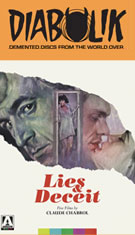
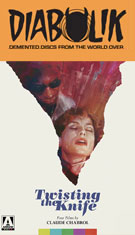
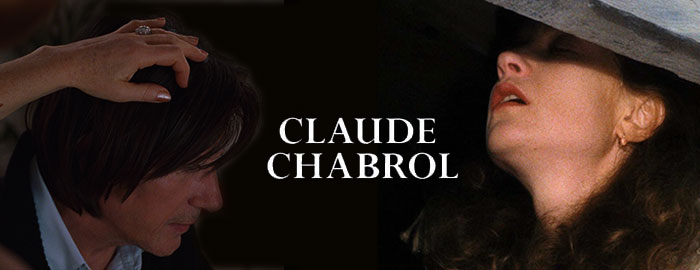



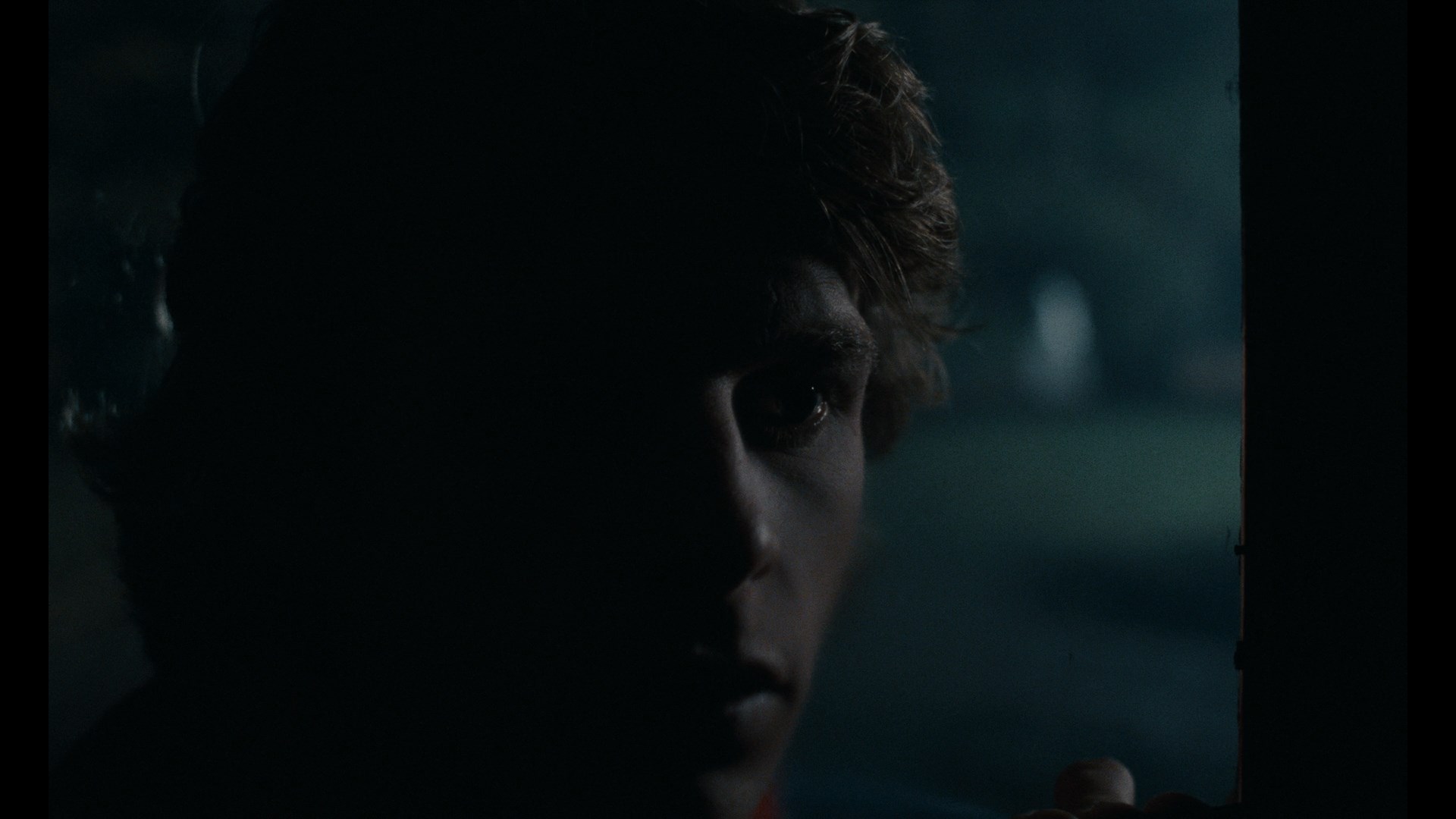 French New Wave but somehow existing just outside of it for much of his
French New Wave but somehow existing just outside of it for much of his 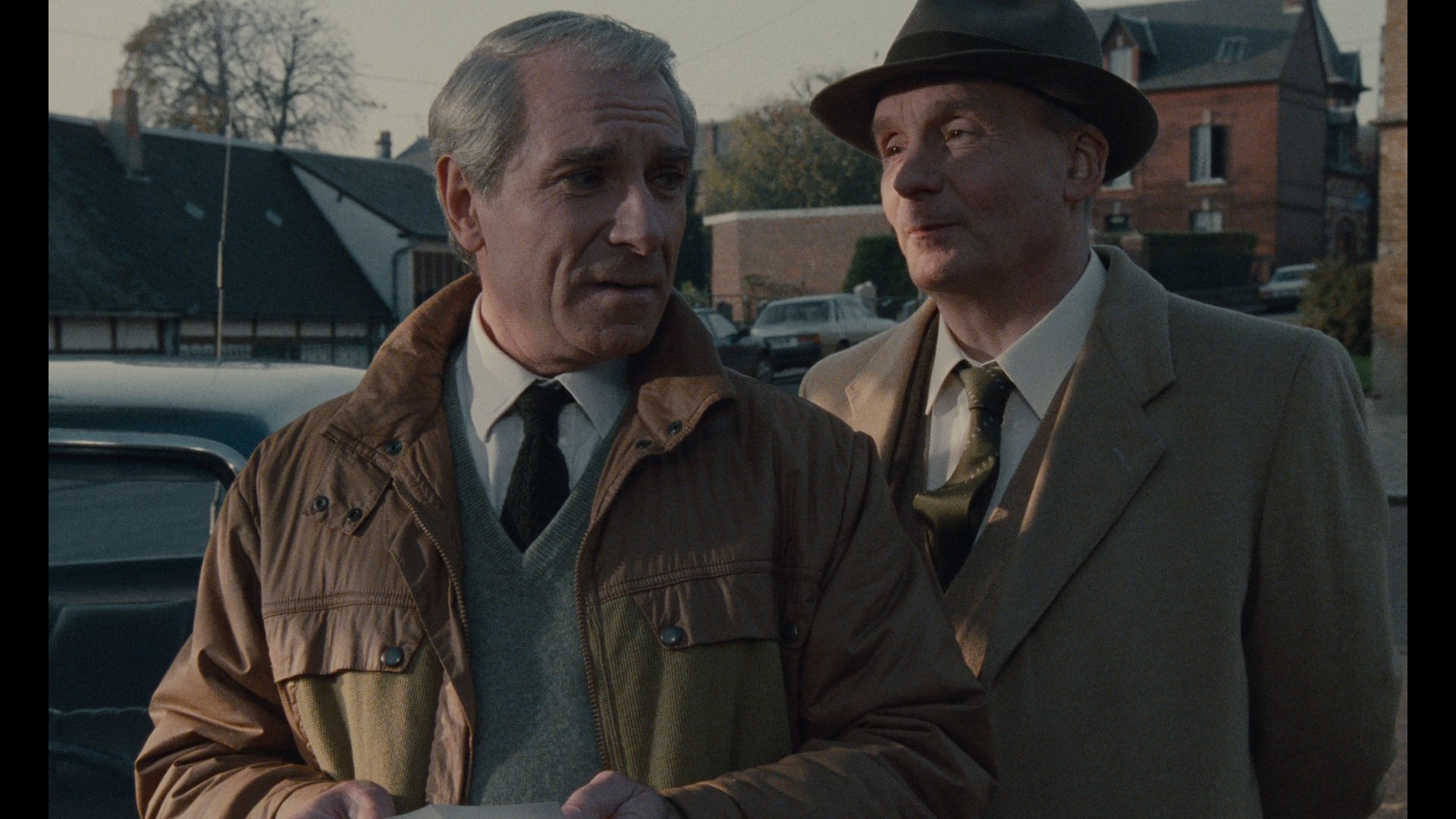 career, Claude Chabrol was the one who most passionately embraced the suspense film with a fervor that frequently drew comparisons to Alfred Hitchcock. However, his style is completely different with a wry sense of irony that managed to say some very biting things about social class, age gaps, and gender differences while doling out clever plot twists. He also managed to attract some of the best actors around, giving them showcases no other director could have provided including his most frequent his latter day muse, Isabelle Huppert. Though his most lauded period from 1968 to 1971 remains insanely neglected and entirely unrepresented on Blu-ray anywhere in the world, Arrow Video has given a welcome spotlight to his later, equally rewarding work in a pair of box sets covering highlights from 1985 to 2003: Lies and Deceit: Five Films by Claude Chabrol and Twisting the Knife: Four Films by Claude Chabrol. The bulk of these films have been on Blu-ray before, but these releases are a handy way to get them in simple batches featuring a wealth of new and archival extras.
career, Claude Chabrol was the one who most passionately embraced the suspense film with a fervor that frequently drew comparisons to Alfred Hitchcock. However, his style is completely different with a wry sense of irony that managed to say some very biting things about social class, age gaps, and gender differences while doling out clever plot twists. He also managed to attract some of the best actors around, giving them showcases no other director could have provided including his most frequent his latter day muse, Isabelle Huppert. Though his most lauded period from 1968 to 1971 remains insanely neglected and entirely unrepresented on Blu-ray anywhere in the world, Arrow Video has given a welcome spotlight to his later, equally rewarding work in a pair of box sets covering highlights from 1985 to 2003: Lies and Deceit: Five Films by Claude Chabrol and Twisting the Knife: Four Films by Claude Chabrol. The bulk of these films have been on Blu-ray before, but these releases are a handy way to get them in simple batches featuring a wealth of new and archival extras.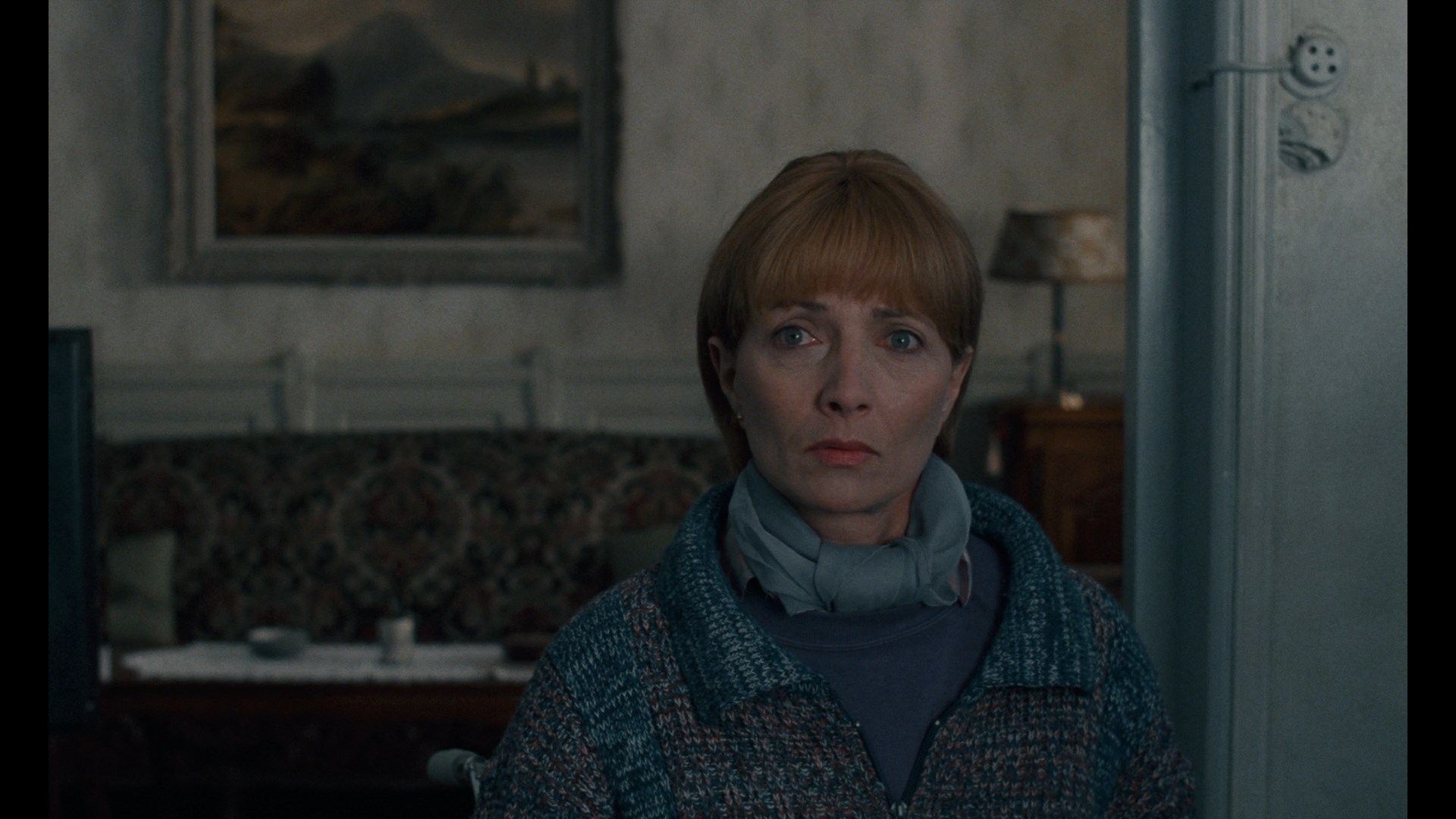 Inspector Lavardin, a violence-prone character Chabrol would revisit multiple times. Here the detective is called in to investigate the death of a village
Inspector Lavardin, a violence-prone character Chabrol would revisit multiple times. Here the detective is called in to investigate the death of a village 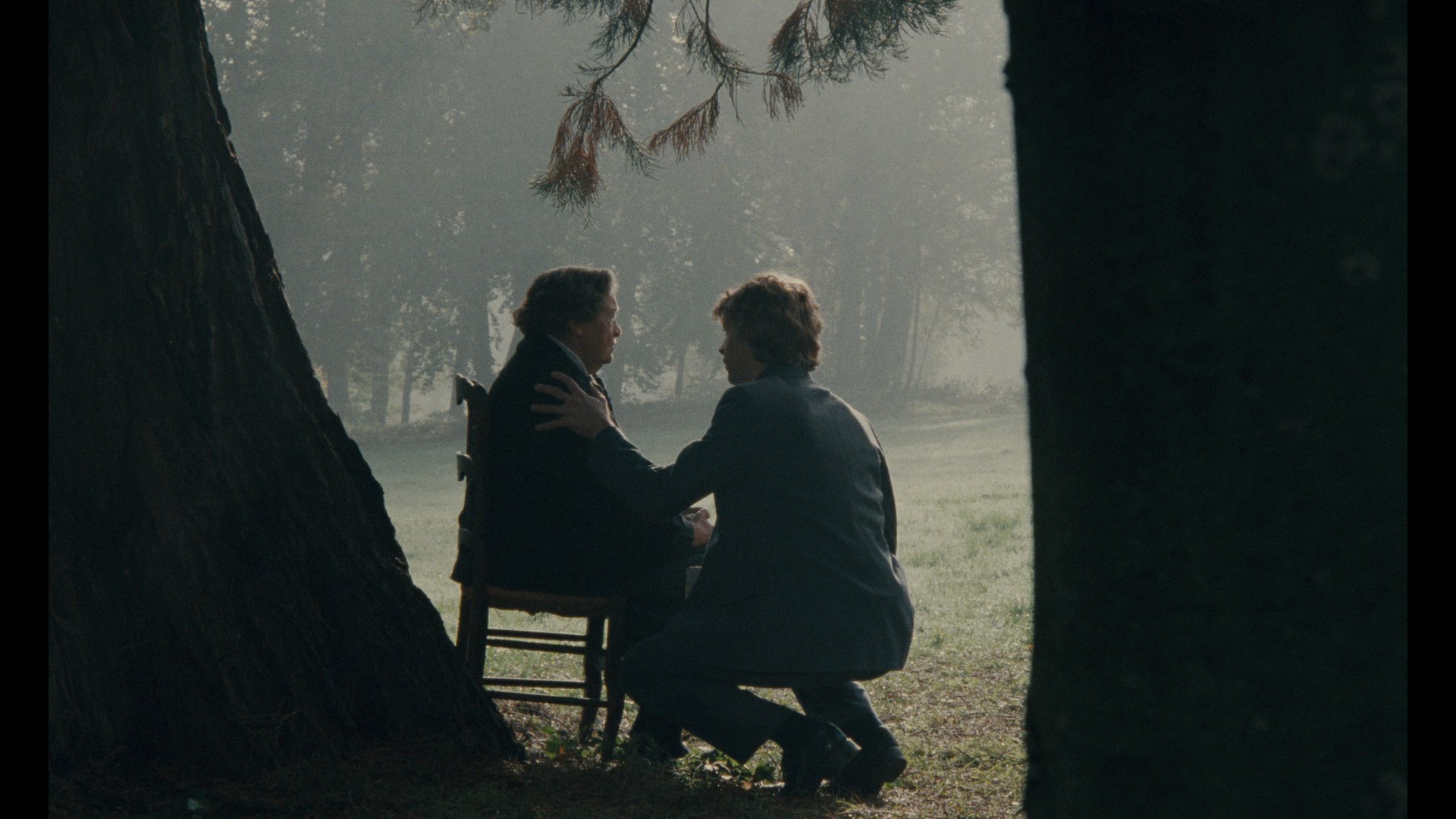 butcher who, along with attorney Lavoisier (Bouquet) and town doctor Morasseau (Topart), has been harassing young Louis (Belvaux) and his invalid mother to gain control of their property. However, there might be more going on with their plan than meets the eye. A mixture of cozy French countryside mystery and hardboiled cop film, this one is pure Chabrol with its fraught domestic lifestyles, secretive bourgeois characters, and a juicy part for his onetime wife and frequent secret weapon, the great Stéphane Audran. Lavardin actually comes into the action fairly late all things considered, but he makes such a strong impression it's no wonder the character caught on. As usual for Chabrol it isn't really visually flashy but always intriguing to look at, including a long subjective sequence from a clicking camera at a nocturnal garden party showing us some clues that will come into play later on after Louis keys one of the cars.
butcher who, along with attorney Lavoisier (Bouquet) and town doctor Morasseau (Topart), has been harassing young Louis (Belvaux) and his invalid mother to gain control of their property. However, there might be more going on with their plan than meets the eye. A mixture of cozy French countryside mystery and hardboiled cop film, this one is pure Chabrol with its fraught domestic lifestyles, secretive bourgeois characters, and a juicy part for his onetime wife and frequent secret weapon, the great Stéphane Audran. Lavardin actually comes into the action fairly late all things considered, but he makes such a strong impression it's no wonder the character caught on. As usual for Chabrol it isn't really visually flashy but always intriguing to look at, including a long subjective sequence from a clicking camera at a nocturnal garden party showing us some clues that will come into play later on after Louis keys one of the cars.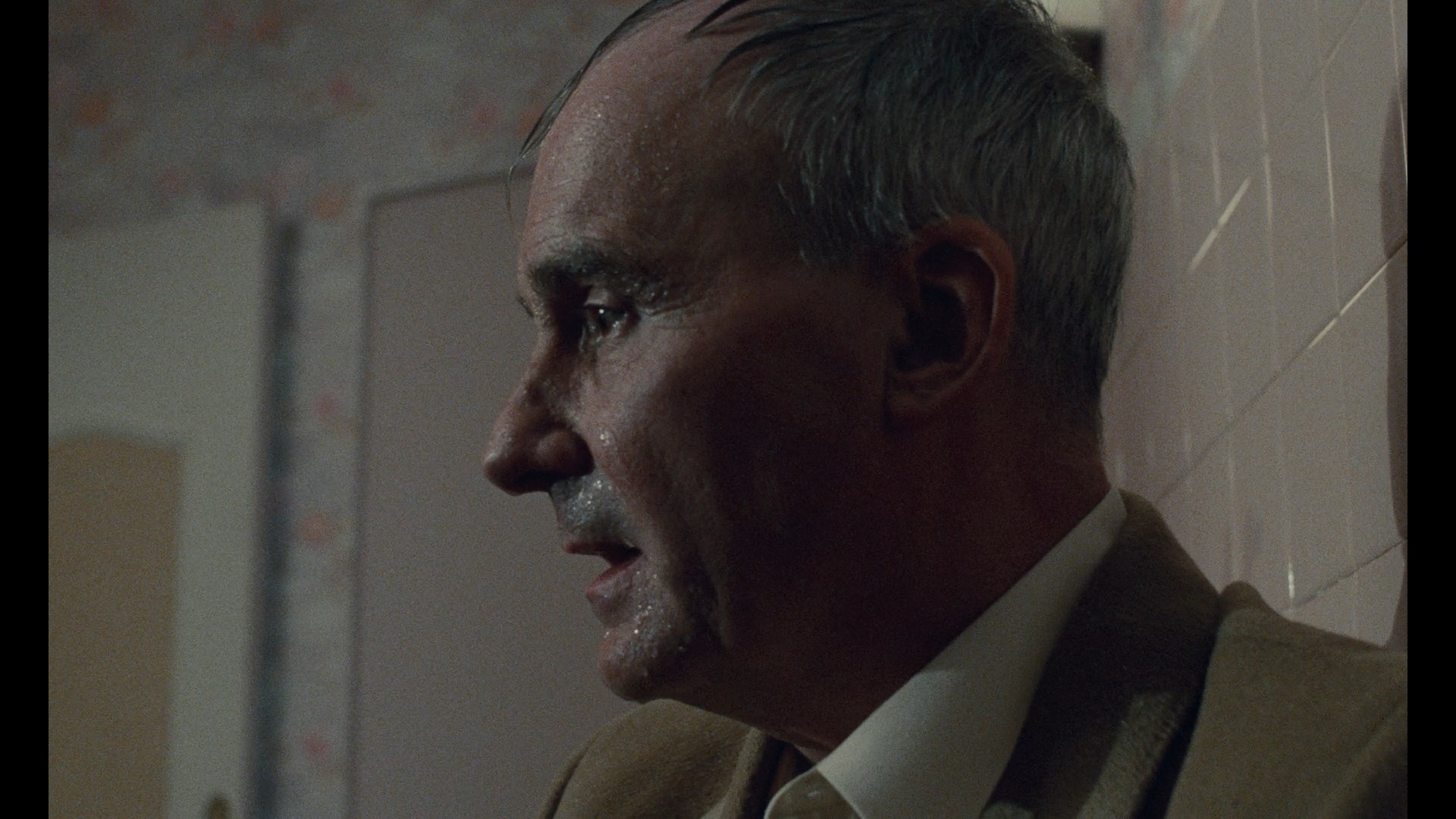 Video (the first disc in the Lies and Deceit set) features a
Video (the first disc in the Lies and Deceit set) features a 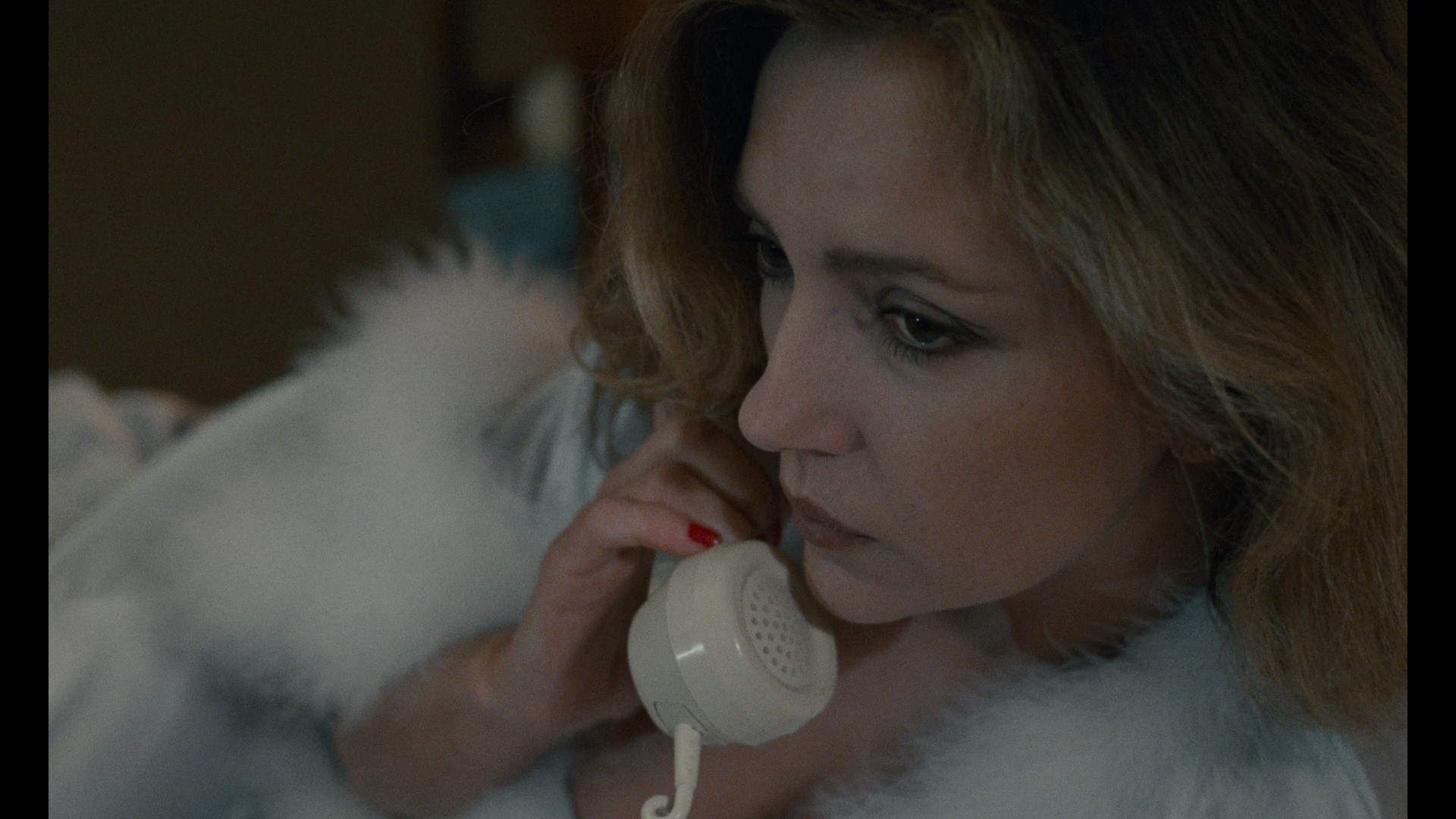 completely different slate of bonus features starting with a fine new commentary by Ben Sachs who takes up a scholarly reading of the film interpreting the symbolism of the locations and character placements, the theme of nefarious activity beneath the surface, and the ins and outs of Chabrol's personal life at the time as well as his career including the family affair mode of his work. A interview with Ian Christie (12m35s) covers his memories and appreciation of Chabrol from their time interviewing together and his thoughts on the filmmaker's work, while a complete 1994 interview between them at the BFI at the National Film Theatre (74m35s) covering his early Cahiers du cinema days (and his status as a rare native Parisian among the French New Wave gang) through his late career resurgence. Pulled from the film's French DVD release are an intro by film scholar Joël Magny (3m14s) and select scene commentaries by Chabrol (21m43s), plus you get a fantastic 1985 episode of the Swiss TV show Special Cinema (29m38s) featuring Chabrol, Poiret, and Audran talking about the film with director Francis Reusser and actress Isabel Otero. Also included are the wild French theatrical trailer (featuring a very Hitchcockian appearance by Chabrol himself) and a gallery of posters and still. As for the film itself, the transfer is considerably cleaner than the Cohen release (removing a lot of specks and scratches) with finer detail and color timing that adds a yellow bias throughout (much more on that later) and has more of an overcast look. The
completely different slate of bonus features starting with a fine new commentary by Ben Sachs who takes up a scholarly reading of the film interpreting the symbolism of the locations and character placements, the theme of nefarious activity beneath the surface, and the ins and outs of Chabrol's personal life at the time as well as his career including the family affair mode of his work. A interview with Ian Christie (12m35s) covers his memories and appreciation of Chabrol from their time interviewing together and his thoughts on the filmmaker's work, while a complete 1994 interview between them at the BFI at the National Film Theatre (74m35s) covering his early Cahiers du cinema days (and his status as a rare native Parisian among the French New Wave gang) through his late career resurgence. Pulled from the film's French DVD release are an intro by film scholar Joël Magny (3m14s) and select scene commentaries by Chabrol (21m43s), plus you get a fantastic 1985 episode of the Swiss TV show Special Cinema (29m38s) featuring Chabrol, Poiret, and Audran talking about the film with director Francis Reusser and actress Isabel Otero. Also included are the wild French theatrical trailer (featuring a very Hitchcockian appearance by Chabrol himself) and a gallery of posters and still. As for the film itself, the transfer is considerably cleaner than the Cohen release (removing a lot of specks and scratches) with finer detail and color timing that adds a yellow bias throughout (much more on that later) and has more of an overcast look. The 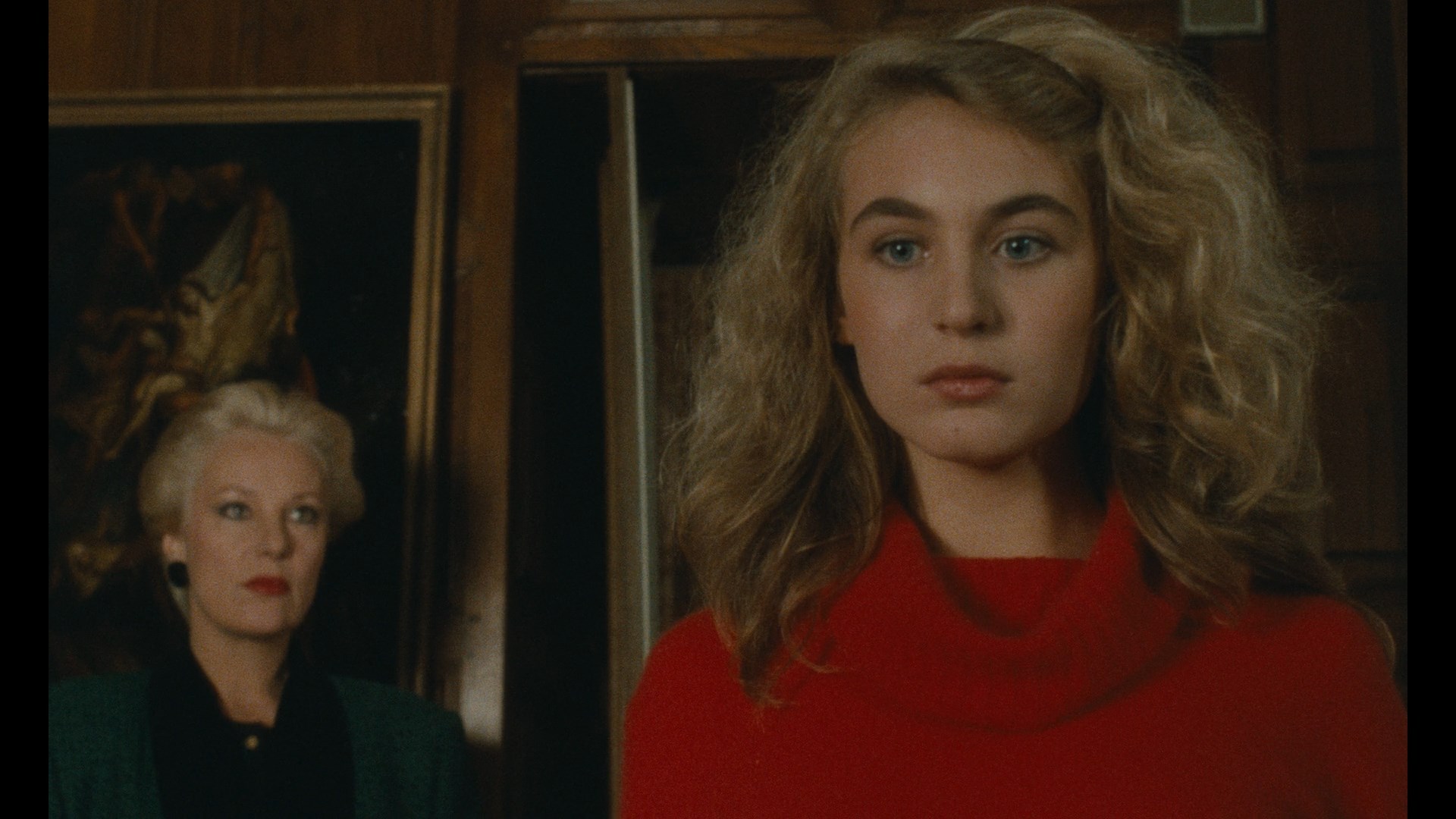 LPCM French 1.0 mono track sounds great and features optional English
LPCM French 1.0 mono track sounds great and features optional English 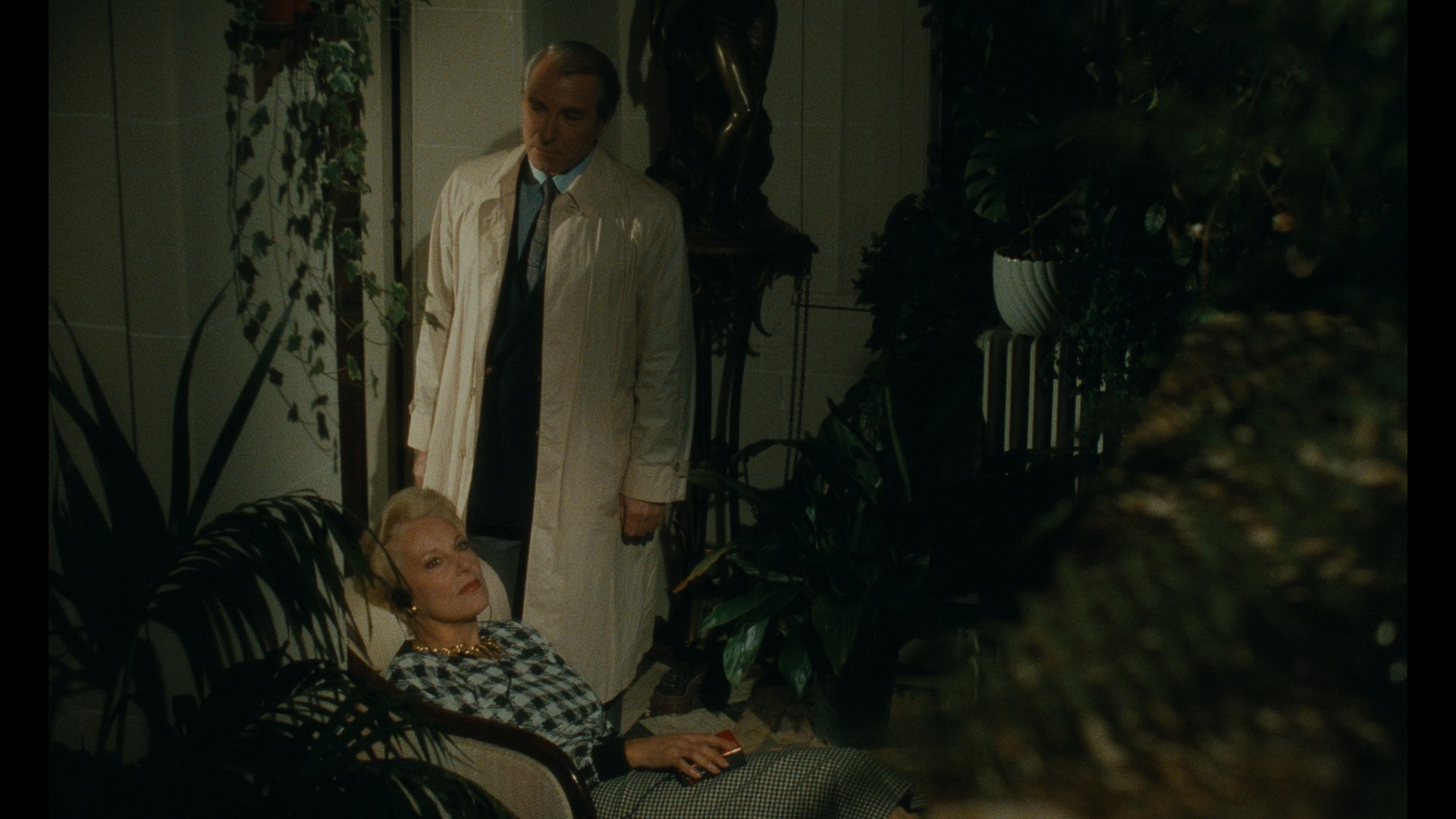 subtitles. Like the rest of the films in these sets, this was also released on Blu-ray in France by MK2 via Carlotta Films with no English-friendly options.
subtitles. Like the rest of the films in these sets, this was also released on Blu-ray in France by MK2 via Carlotta Films with no English-friendly options.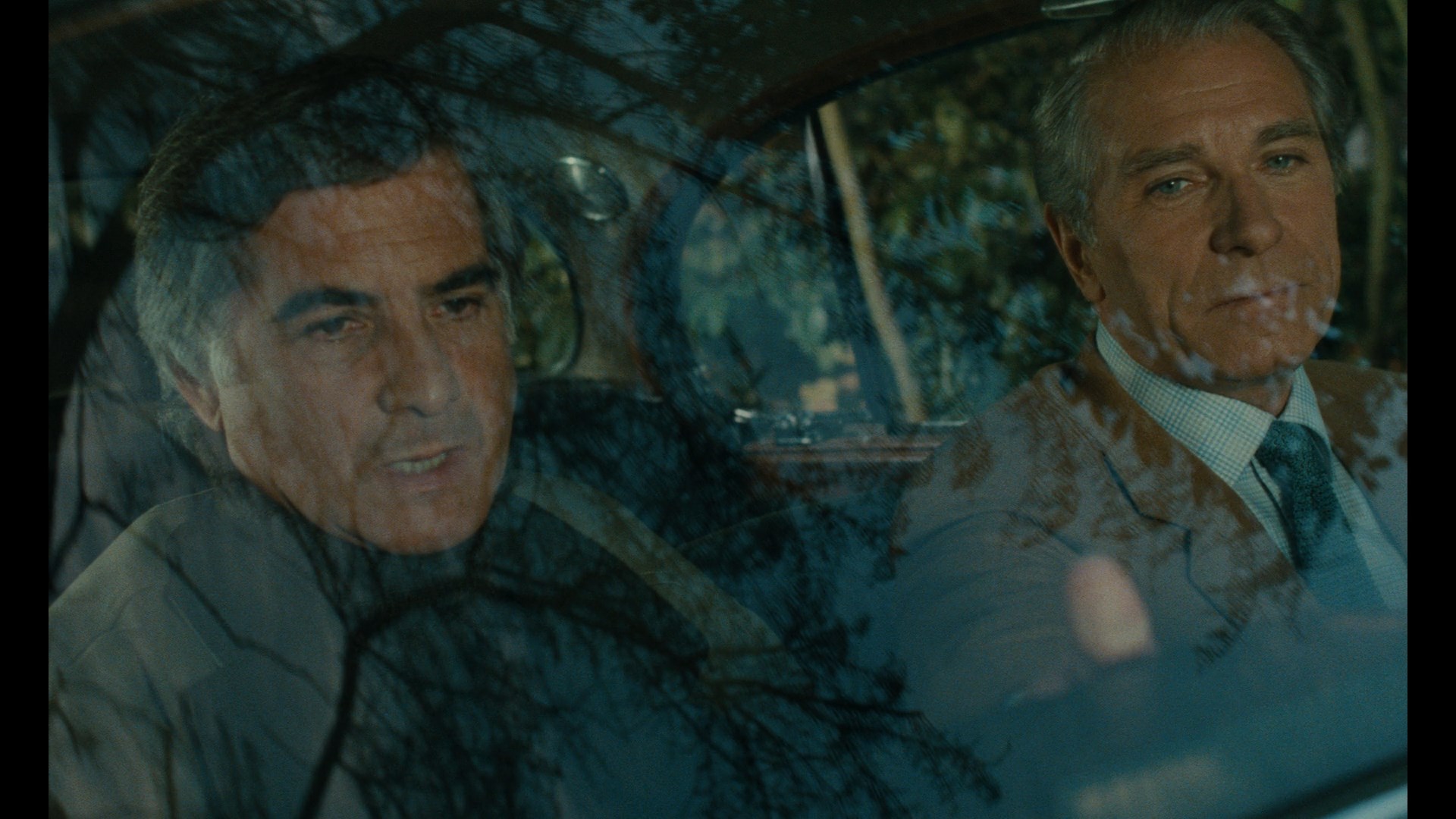 stage this time and has fun with the part, getting
stage this time and has fun with the part, getting 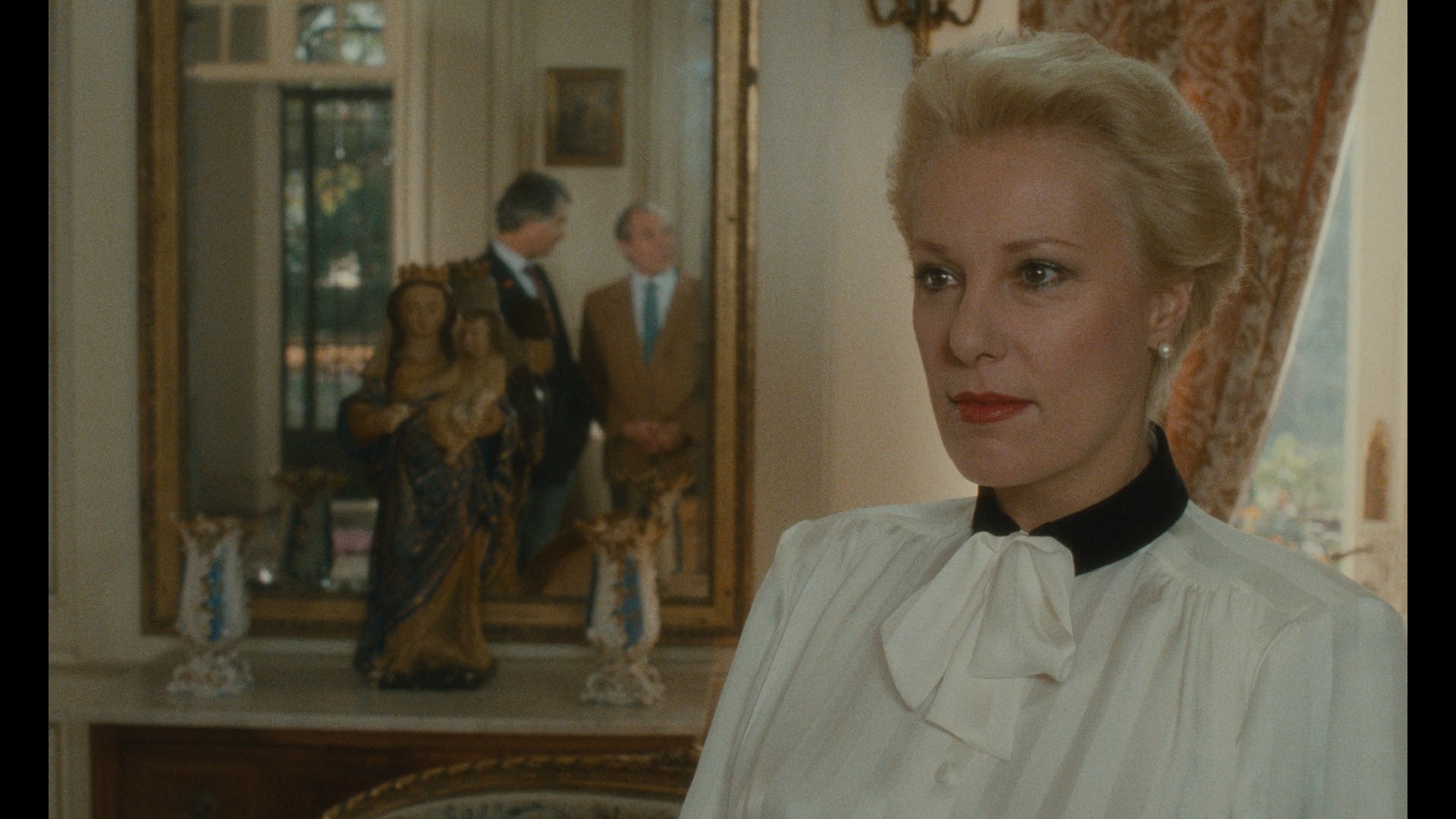 more character development here as well as a backstory to play with. Like the preceding one, this got very limited play outside of France until the DVD era when English-subtitled releases started popping up in the U.S. and in Europe. The first Blu-ray from Cohen (as mentioned above) was a big leap at the time and still holds up well, apart from some minor damage again here. That release features another Major and Klein commentary track, the 2014 reissue trailer, and 1989's Danger Lies in the Words (94m14s) directed by Chabrol from the The Secret Files of Inspector Lavardin TV movies.
more character development here as well as a backstory to play with. Like the preceding one, this got very limited play outside of France until the DVD era when English-subtitled releases started popping up in the U.S. and in Europe. The first Blu-ray from Cohen (as mentioned above) was a big leap at the time and still holds up well, apart from some minor damage again here. That release features another Major and Klein commentary track, the 2014 reissue trailer, and 1989's Danger Lies in the Words (94m14s) directed by Chabrol from the The Secret Files of Inspector Lavardin TV movies.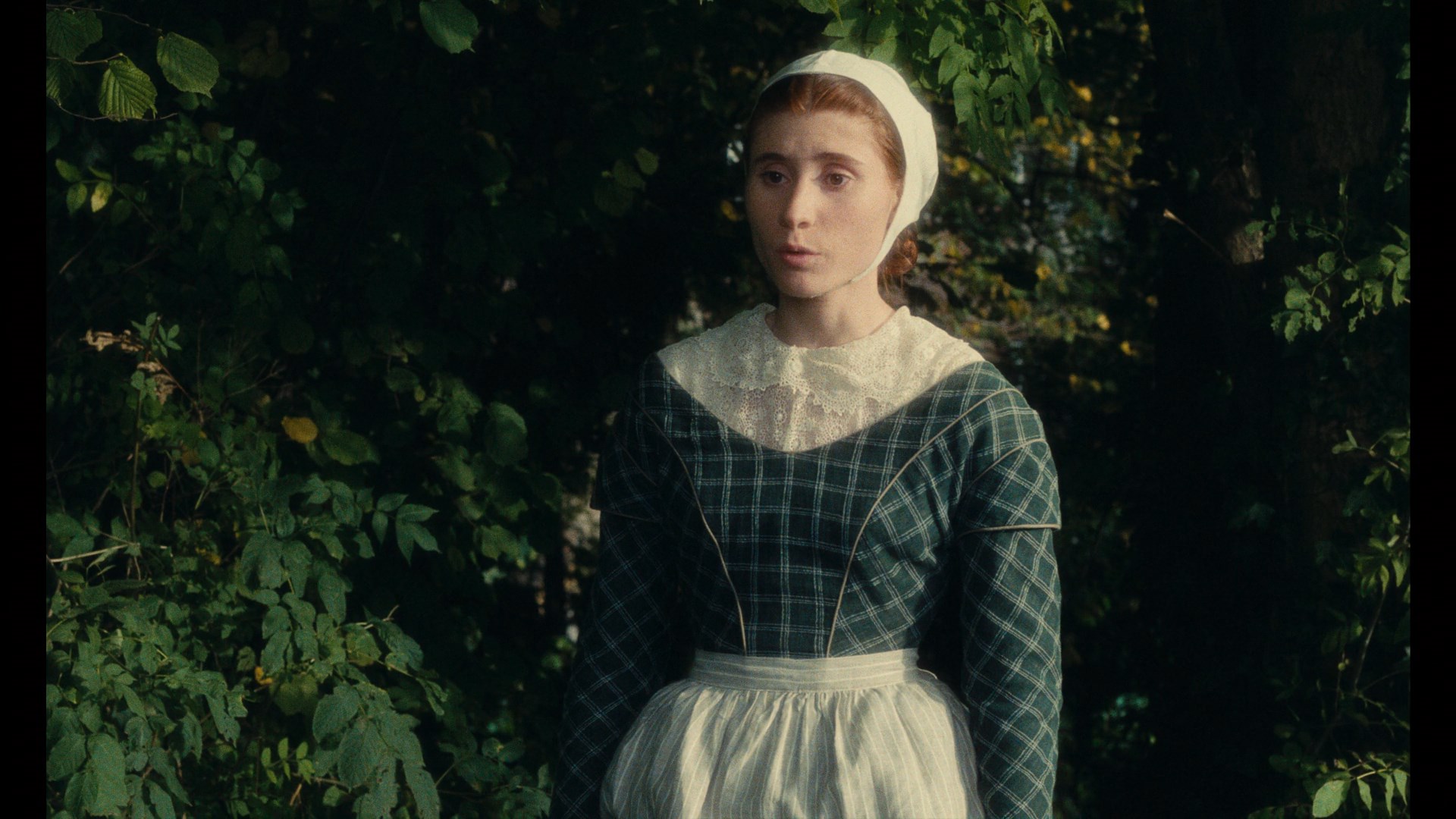 side with much deeper blacks in the
side with much deeper blacks in the 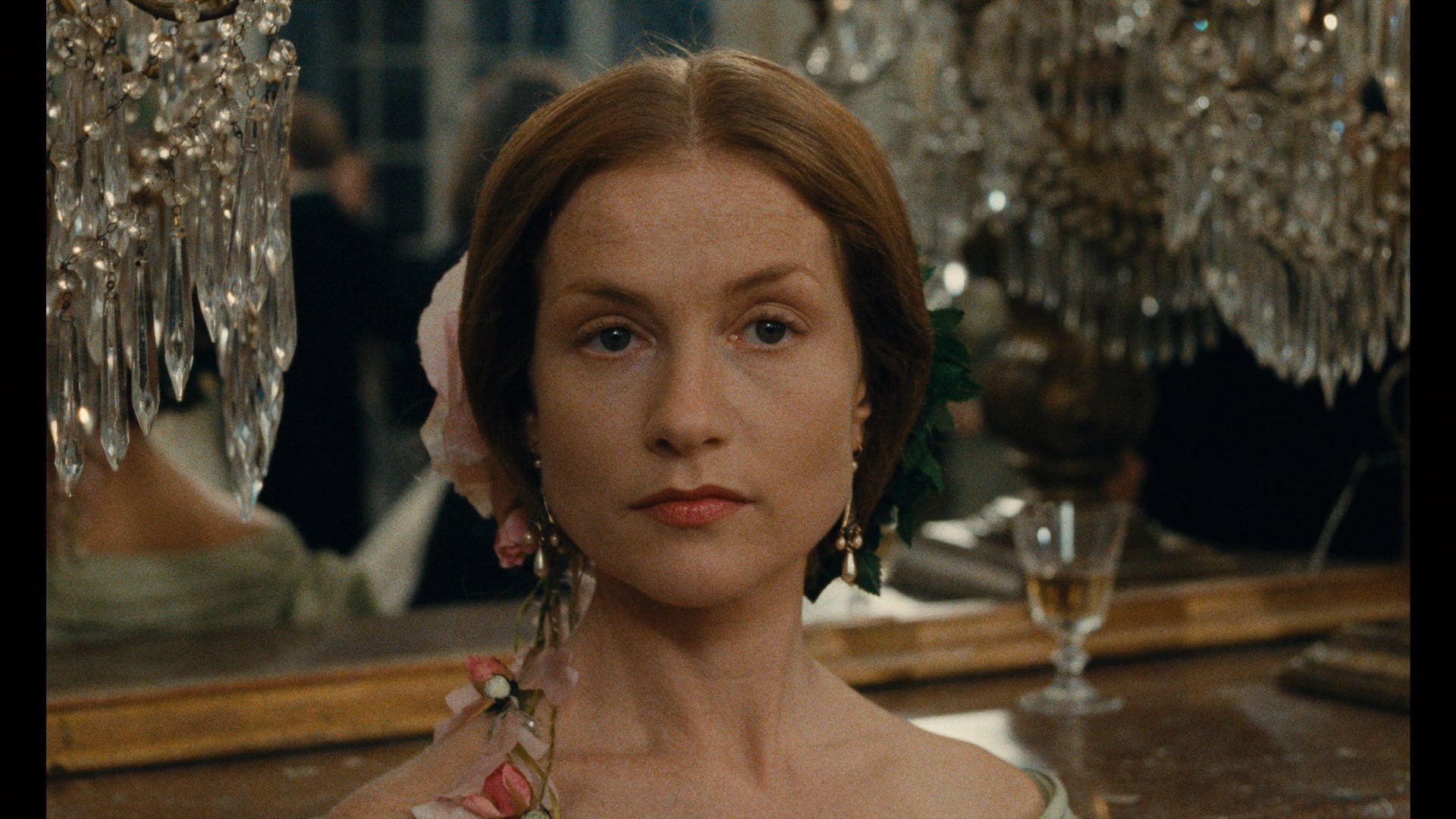 process.
process. 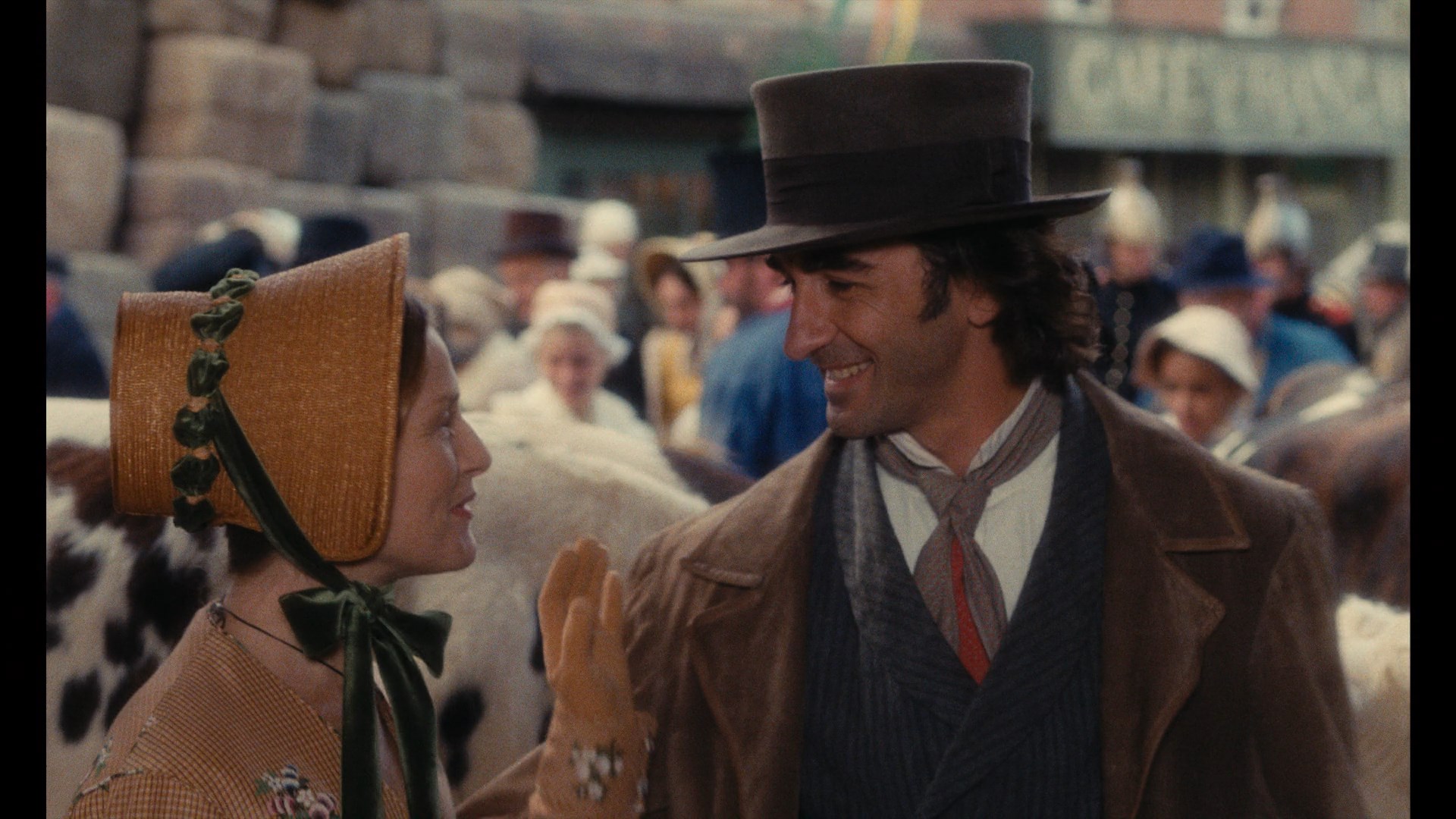 progression of their two heralded prior collaborations, Violette and Story of Women. The rest of the cast is fine as well though, particularly Malavoy (who seems to be incapable of giving a bad performance), and the production design and costumes
progression of their two heralded prior collaborations, Violette and Story of Women. The rest of the cast is fine as well though, particularly Malavoy (who seems to be incapable of giving a bad performance), and the production design and costumes 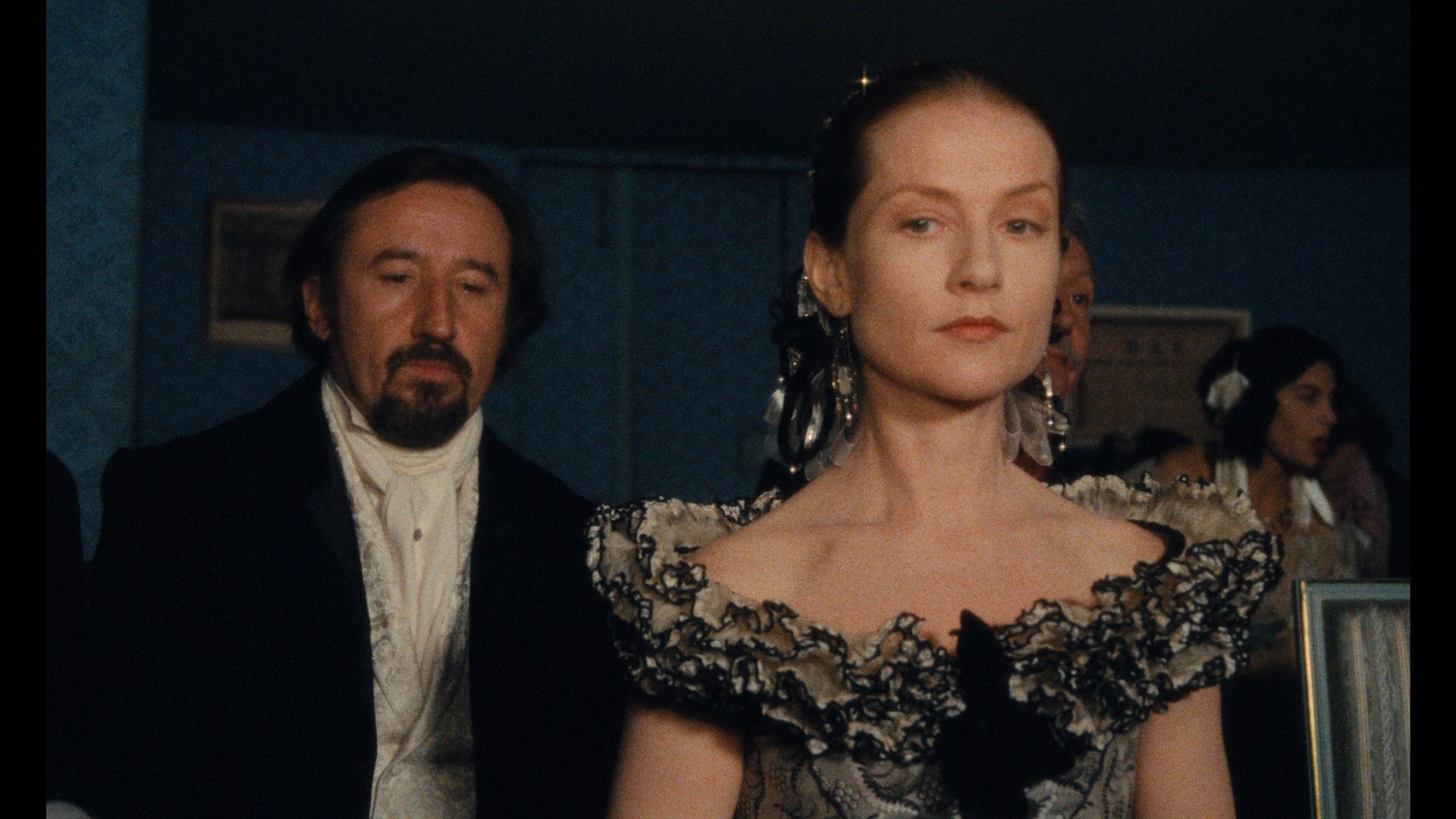 are all convincing. Given a U.S. theatrical run by The Samuel Goldwyn Company, this one fell to MGM for several years which led to a disappointing DVD that fell afoul of their ludicrous policy to never offer 16x9 enhancement for films framed at 1.66:1. Fortunately you can toss that dud of a disc aside thanks to the Arrow release, which looks vastly superior in every way. It's also fairly heavy on the gold look but that works in this case, and the level of detail here is very satisfying. The film also comes with a new commentary by Kat Ellinger, and it's a slam dunk -- possibly one of her very best, and an essential companion to the film itself. Loaded with info and insights about the source novel, Chabrol's approach to the source material, the role of the story in world literature and the perceptions of women, and tons more, the track fills out the entire film nonstop (which is no easy feat given it's well over two hours). Also very worthwhile is "Imagining Emma: Madame Bovary On Screen" (16m6s), a video essay by film historian Pamela Hutchinson that examines how this film compares to other versions including the fine one by Jean Renoir, the much-altered Hollywood version by Vincente Minnelli, and even a Bollywood variation and affiliated titles like Ryan's Daughter. Ported over from the earlier French release are an archival Magny intro (2m31s) and Chabrol
are all convincing. Given a U.S. theatrical run by The Samuel Goldwyn Company, this one fell to MGM for several years which led to a disappointing DVD that fell afoul of their ludicrous policy to never offer 16x9 enhancement for films framed at 1.66:1. Fortunately you can toss that dud of a disc aside thanks to the Arrow release, which looks vastly superior in every way. It's also fairly heavy on the gold look but that works in this case, and the level of detail here is very satisfying. The film also comes with a new commentary by Kat Ellinger, and it's a slam dunk -- possibly one of her very best, and an essential companion to the film itself. Loaded with info and insights about the source novel, Chabrol's approach to the source material, the role of the story in world literature and the perceptions of women, and tons more, the track fills out the entire film nonstop (which is no easy feat given it's well over two hours). Also very worthwhile is "Imagining Emma: Madame Bovary On Screen" (16m6s), a video essay by film historian Pamela Hutchinson that examines how this film compares to other versions including the fine one by Jean Renoir, the much-altered Hollywood version by Vincente Minnelli, and even a Bollywood variation and affiliated titles like Ryan's Daughter. Ported over from the earlier French release are an archival Magny intro (2m31s) and Chabrol 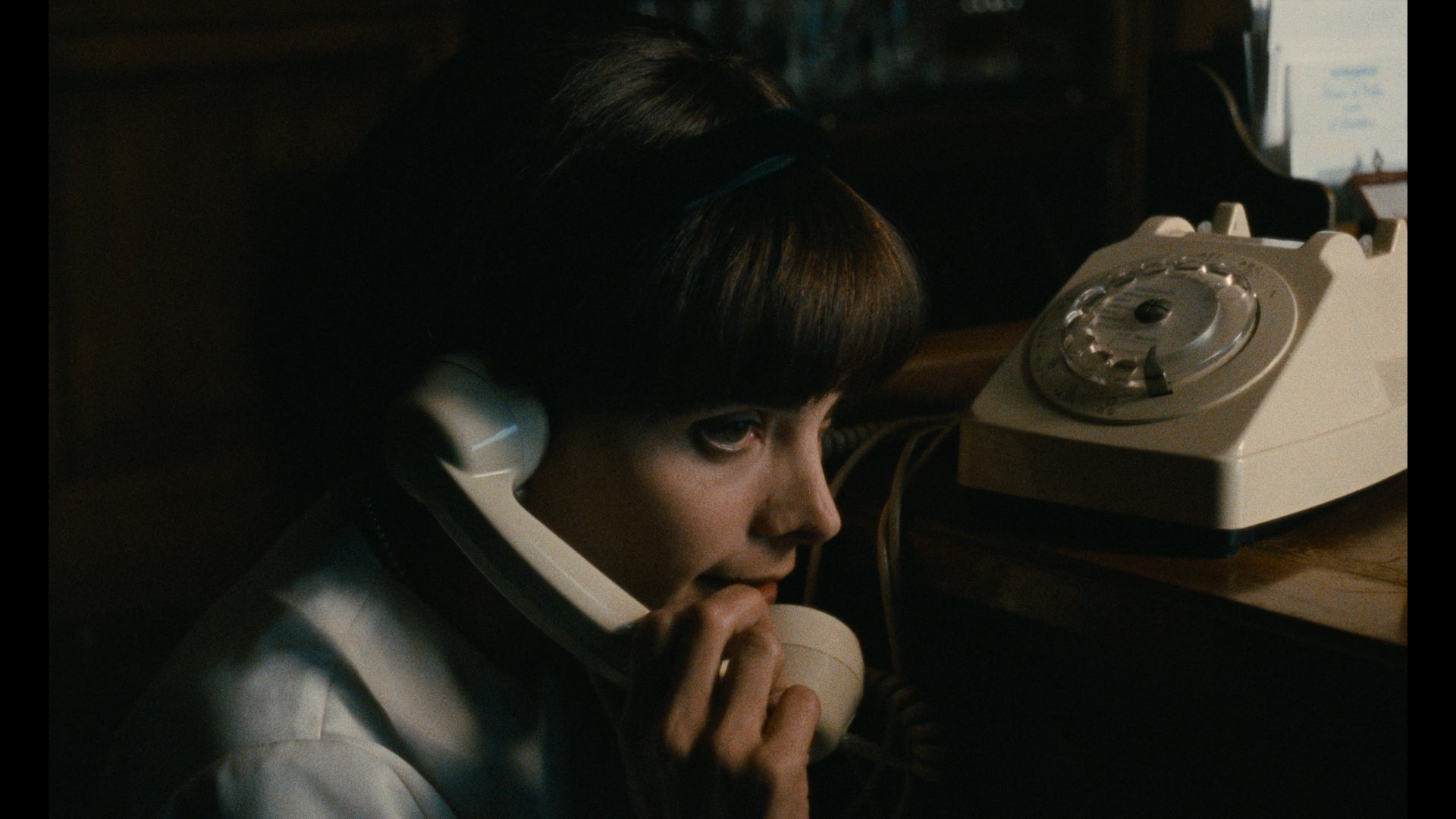 select scene commentaries (37m59s),
select scene commentaries (37m59s), 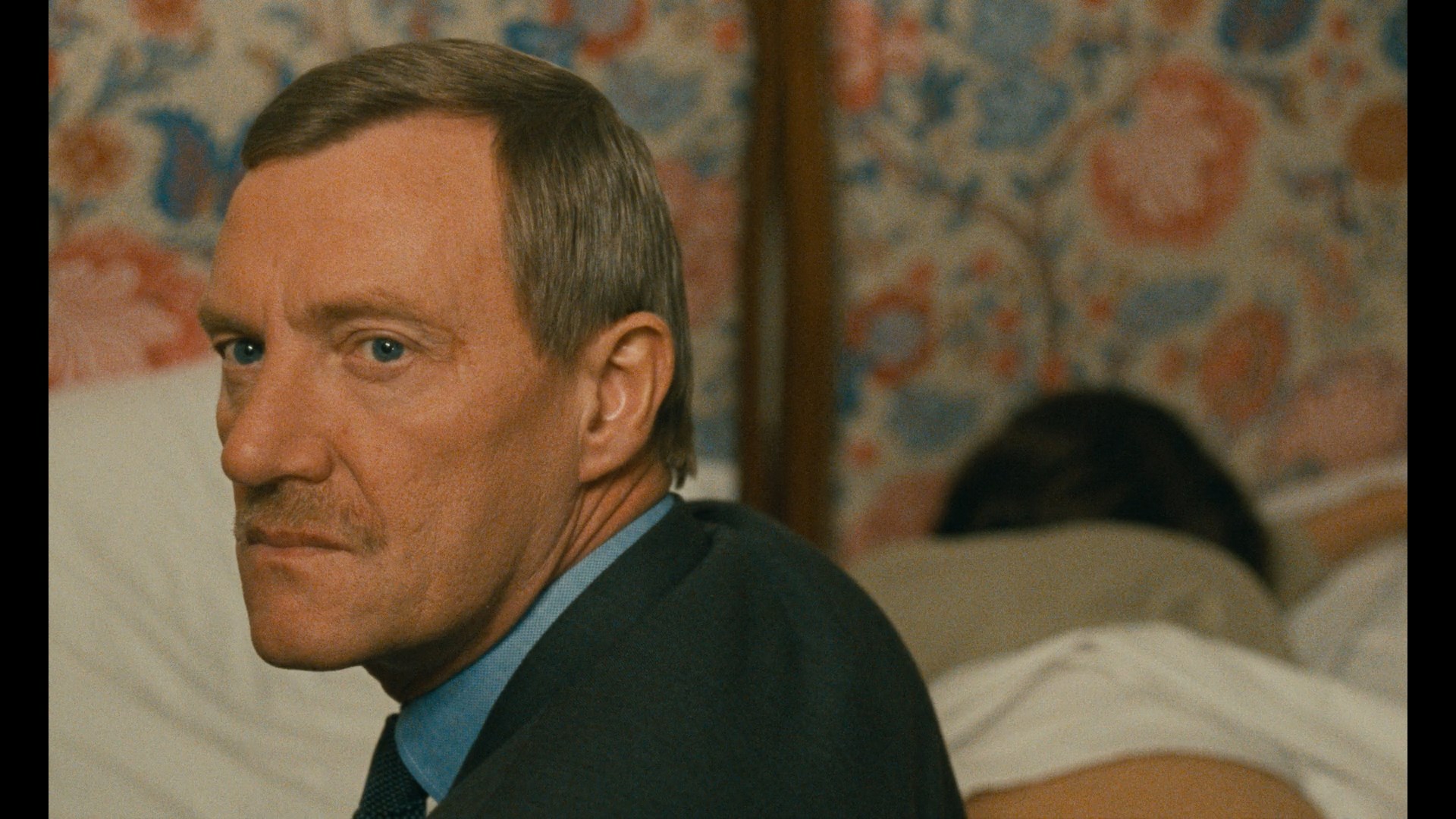 plus the trailer and a gallery.
plus the trailer and a gallery.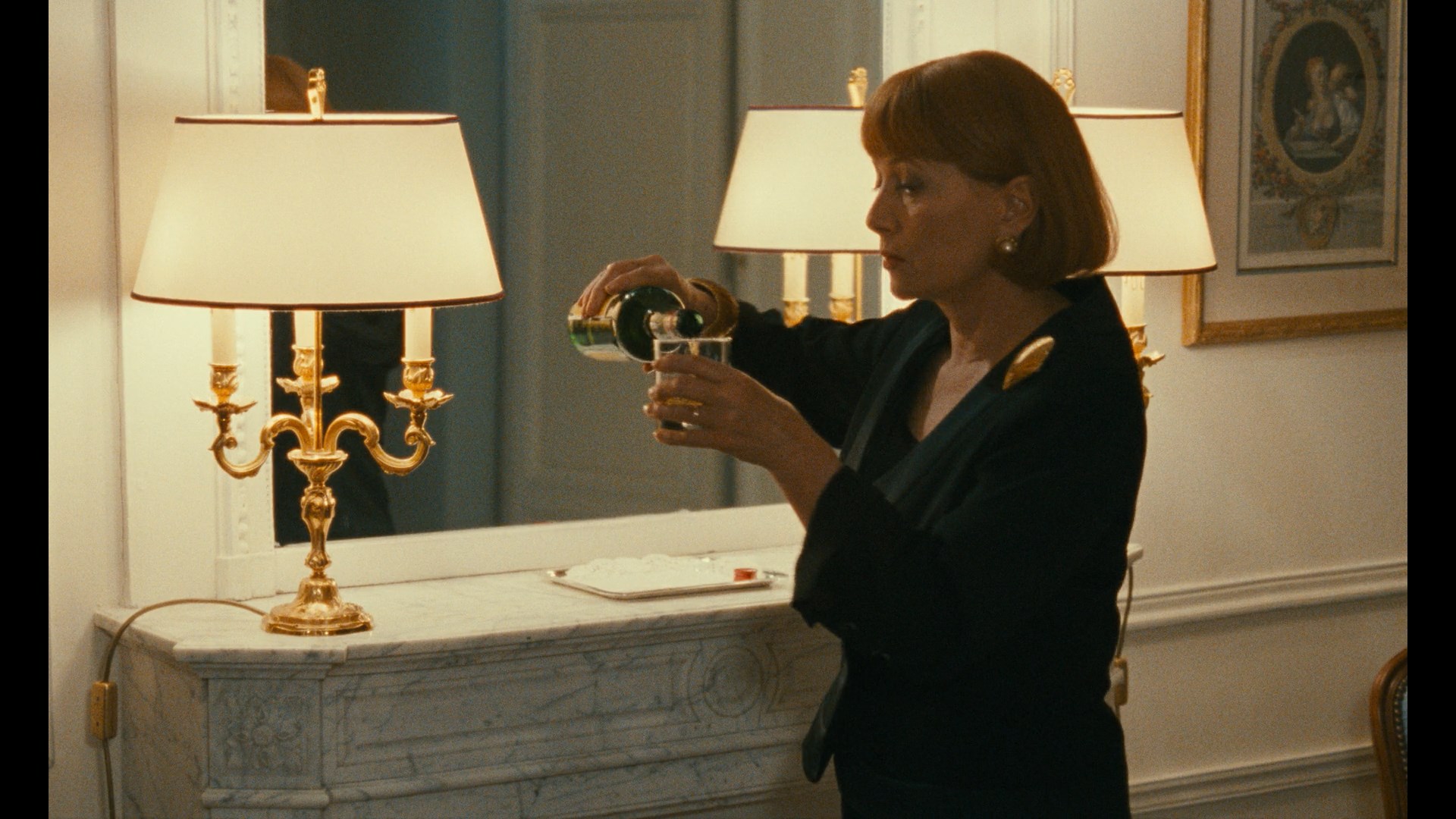 embellishments Chabrol added to the narrative (especially that recurring fish
embellishments Chabrol added to the narrative (especially that recurring fish 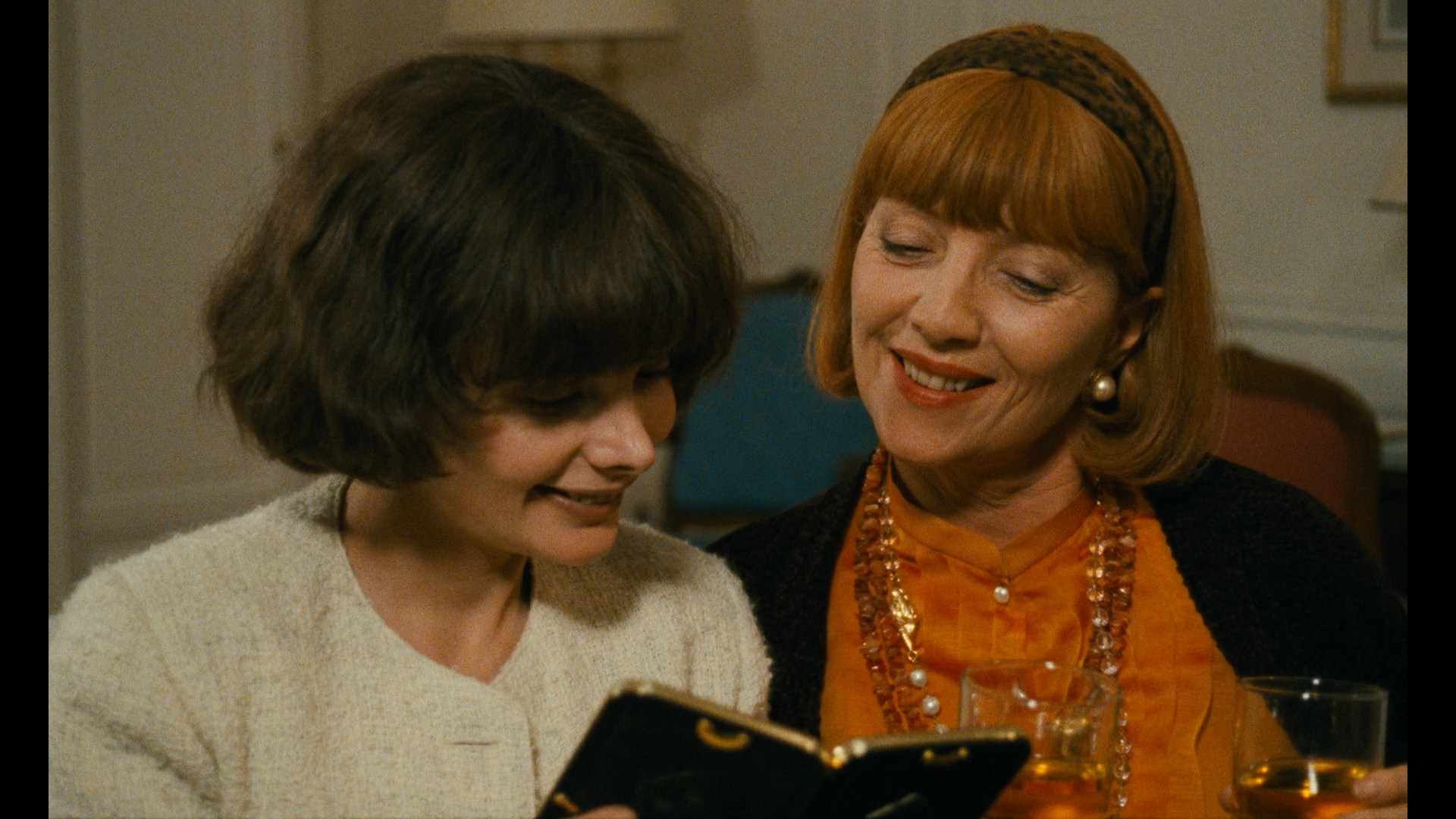 tank). This film is also significant since it was the first Chabrol thriller to get really significant international distribution for well over a decade, and its positive reception in the U.S. in particular paved the way for his remarkable career resurgence that really took hold with his 1995 masterpiece La Cérémonie, ensuring every film afterward would find a global audience to some extent.
tank). This film is also significant since it was the first Chabrol thriller to get really significant international distribution for well over a decade, and its positive reception in the U.S. in particular paved the way for his remarkable career resurgence that really took hold with his 1995 masterpiece La Cérémonie, ensuring every film afterward would find a global audience to some extent.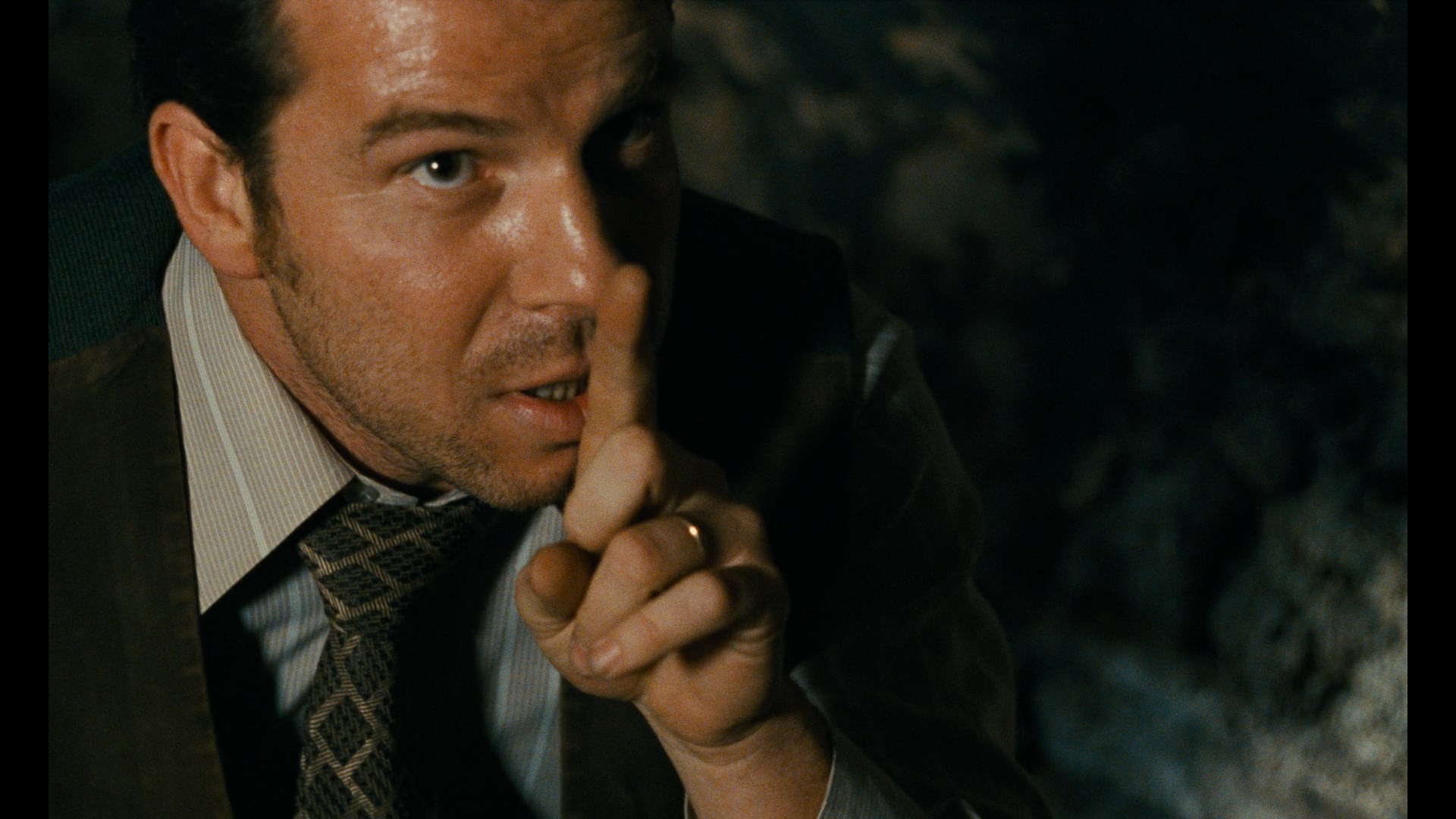 the differences from the novel, the similarities to other works of European cinema, and much more. (One debit though for calling
the differences from the novel, the similarities to other works of European cinema, and much more. (One debit though for calling 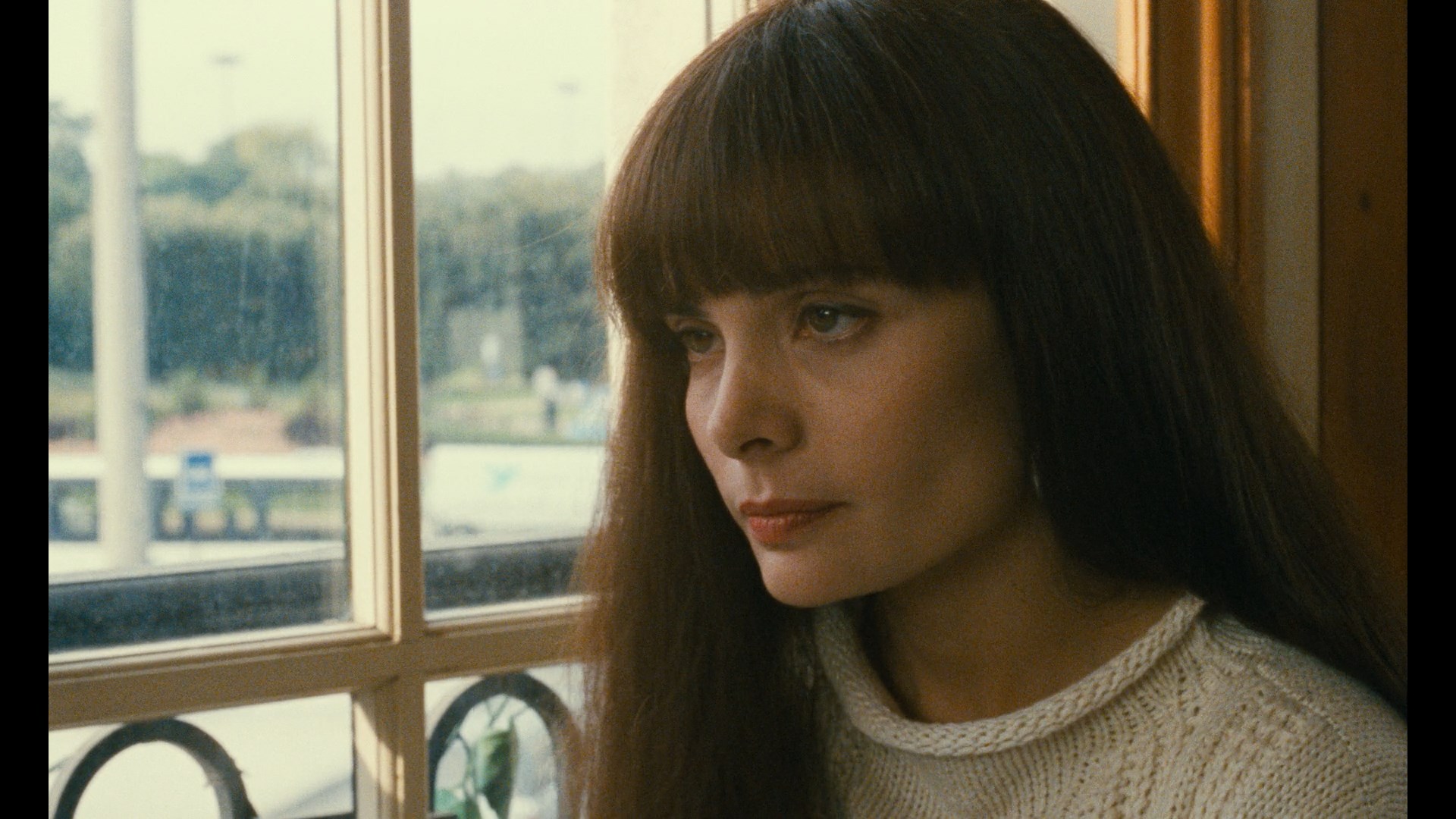 Audran "Stephanie" the whole time.) The very interesting "Betty, from Simenon to Chabrol" (16m16s) is a new video essay by film historian Ginette Vincendeau who goes really deep into the differences between the novel and film including more about that aquarium, the role of first-person narration, and the correlations between the writing style and Chabrol's visual interpretations. Seen earlier as the translator in that Chabrol NFT appearance, Ros Schwartz appears in a great interview (15m21s) chatting about her experiences as the English translator of the Simenon novel and the general challenges of tackling different authors who make each job completely different. Keeping with the pattern, you also get an archival Magny intro (2m57s), Chabrol select scene commentaries (32m21s), the short and enigmatic French trailer, and an image gallery. The downside is that here the yellow cast goes into overdrive, giving the film a radically different look than it ever had in theaters or other video releases. Otherwise it's crisp and more detailed throughout, if you can get past the color timing that's very similar to what we've seen on a lot of L'Immagine Ritrovata restorations (most infamously The Good, The Bad and the Ugly).
Audran "Stephanie" the whole time.) The very interesting "Betty, from Simenon to Chabrol" (16m16s) is a new video essay by film historian Ginette Vincendeau who goes really deep into the differences between the novel and film including more about that aquarium, the role of first-person narration, and the correlations between the writing style and Chabrol's visual interpretations. Seen earlier as the translator in that Chabrol NFT appearance, Ros Schwartz appears in a great interview (15m21s) chatting about her experiences as the English translator of the Simenon novel and the general challenges of tackling different authors who make each job completely different. Keeping with the pattern, you also get an archival Magny intro (2m57s), Chabrol select scene commentaries (32m21s), the short and enigmatic French trailer, and an image gallery. The downside is that here the yellow cast goes into overdrive, giving the film a radically different look than it ever had in theaters or other video releases. Otherwise it's crisp and more detailed throughout, if you can get past the color timing that's very similar to what we've seen on a lot of L'Immagine Ritrovata restorations (most infamously The Good, The Bad and the Ugly).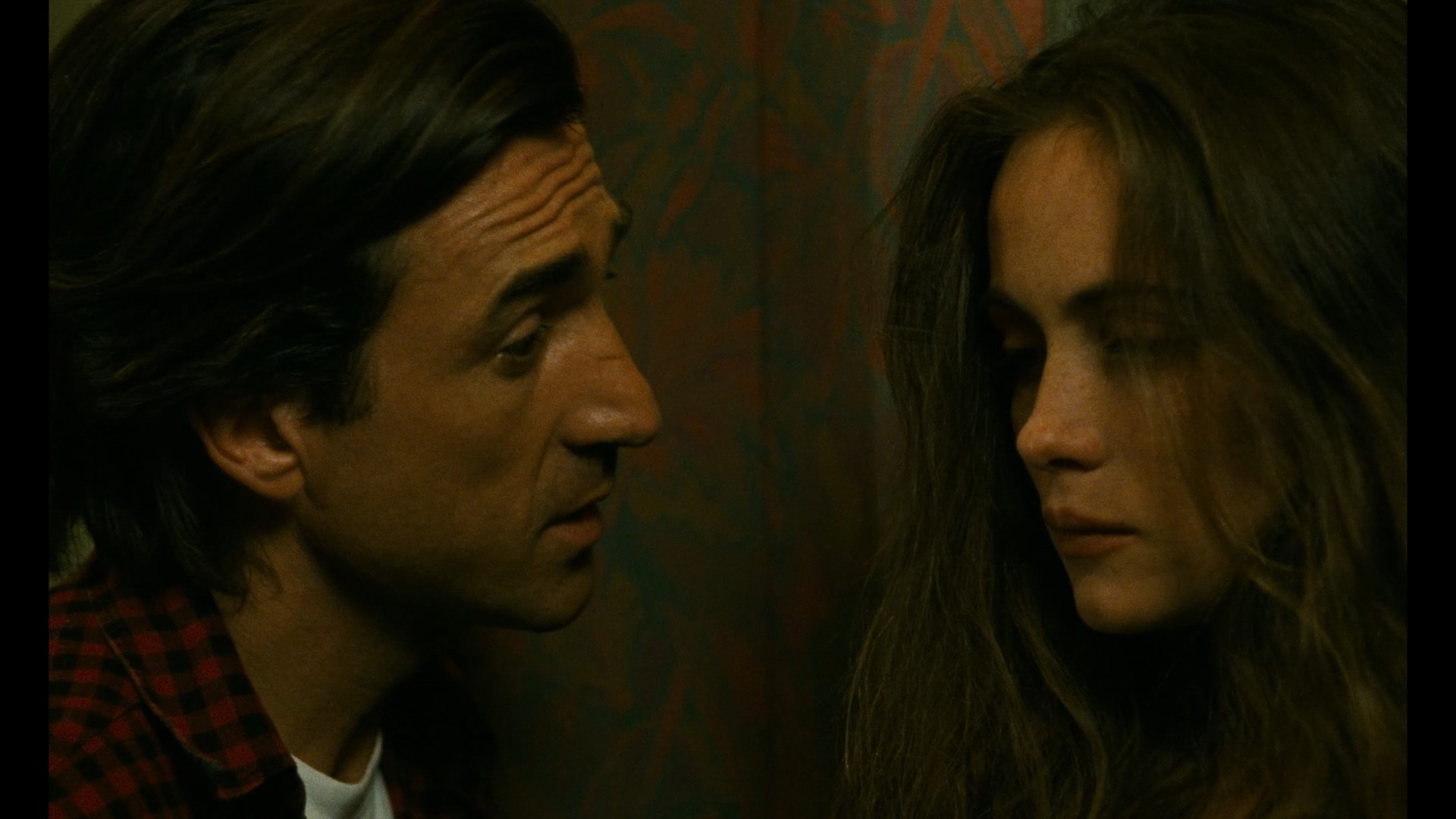 Finally the first set concludes with
Finally the first set concludes with 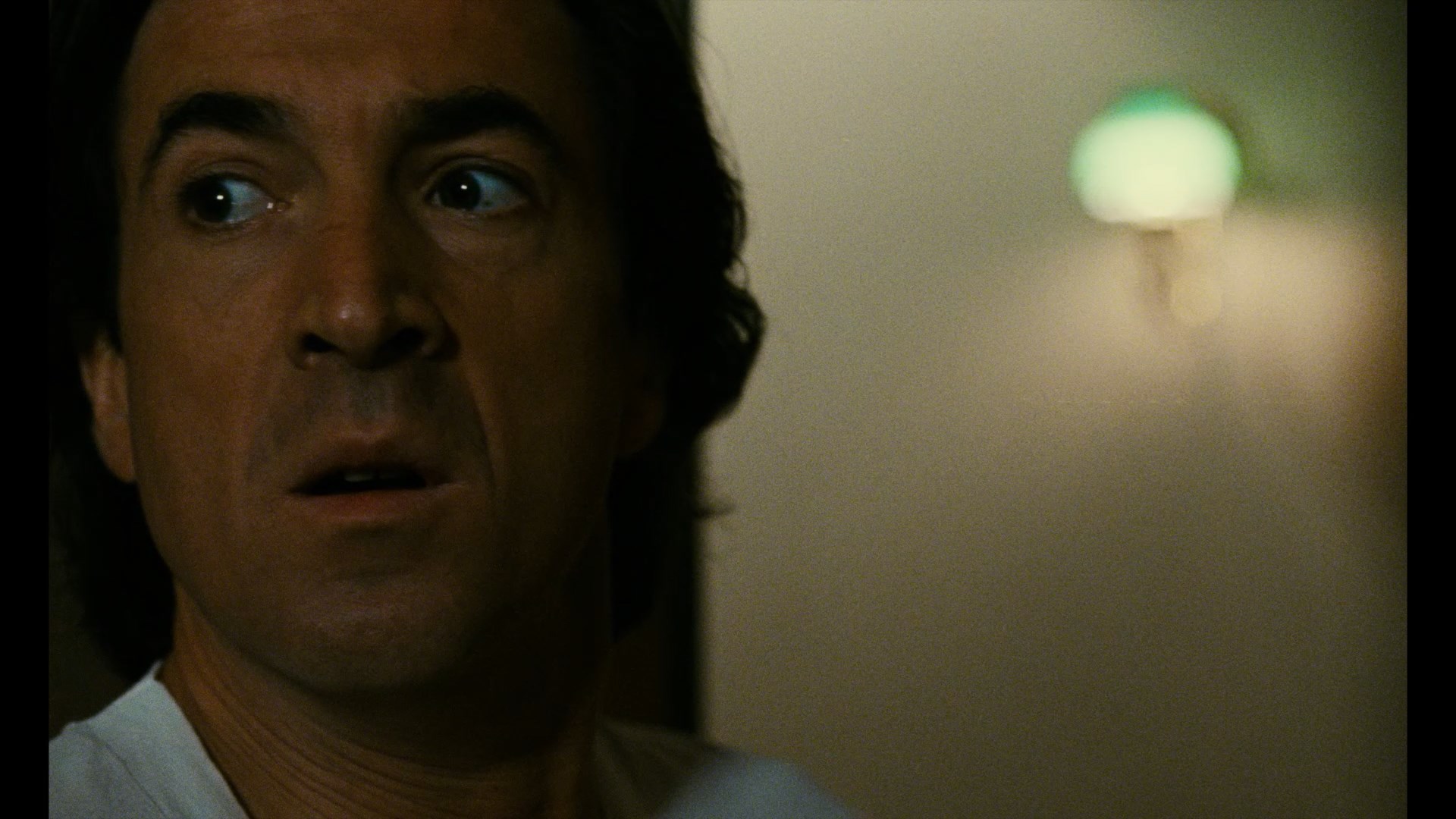 the most harrowing film of the bunch by a long shot, 1994's Torment, better known theatrically around the world by its original French title, L'enfer (or Hell). This one's particularly significant in French cinema history due to its origins as a doomed project by Henri-Georges Clouzot, which was unfinished in 1964 due to a raft of unforeseen problems. The existing footage was eventually transformed into Serge Bromberg's documentary, Henri-Georges Clouzot's Inferno, but in the interim Chabrol himself shot the script himself with Emmanuelle Béart and François Cluzet as Nelly and Paul, a married couple running a hotel outside of the big city. However, Paul starts to believe Nelly is having various affairs around the premises, something exacerbated when her demeanor seems to change at the drop of a hat. It doesn't take long to figure out that Paul is the real problem here since he's soon revealed to be completely despicable and paranoid, a situation that soon escalates into horrific territory.
the most harrowing film of the bunch by a long shot, 1994's Torment, better known theatrically around the world by its original French title, L'enfer (or Hell). This one's particularly significant in French cinema history due to its origins as a doomed project by Henri-Georges Clouzot, which was unfinished in 1964 due to a raft of unforeseen problems. The existing footage was eventually transformed into Serge Bromberg's documentary, Henri-Georges Clouzot's Inferno, but in the interim Chabrol himself shot the script himself with Emmanuelle Béart and François Cluzet as Nelly and Paul, a married couple running a hotel outside of the big city. However, Paul starts to believe Nelly is having various affairs around the premises, something exacerbated when her demeanor seems to change at the drop of a hat. It doesn't take long to figure out that Paul is the real problem here since he's soon revealed to be completely despicable and paranoid, a situation that soon escalates into horrific territory. 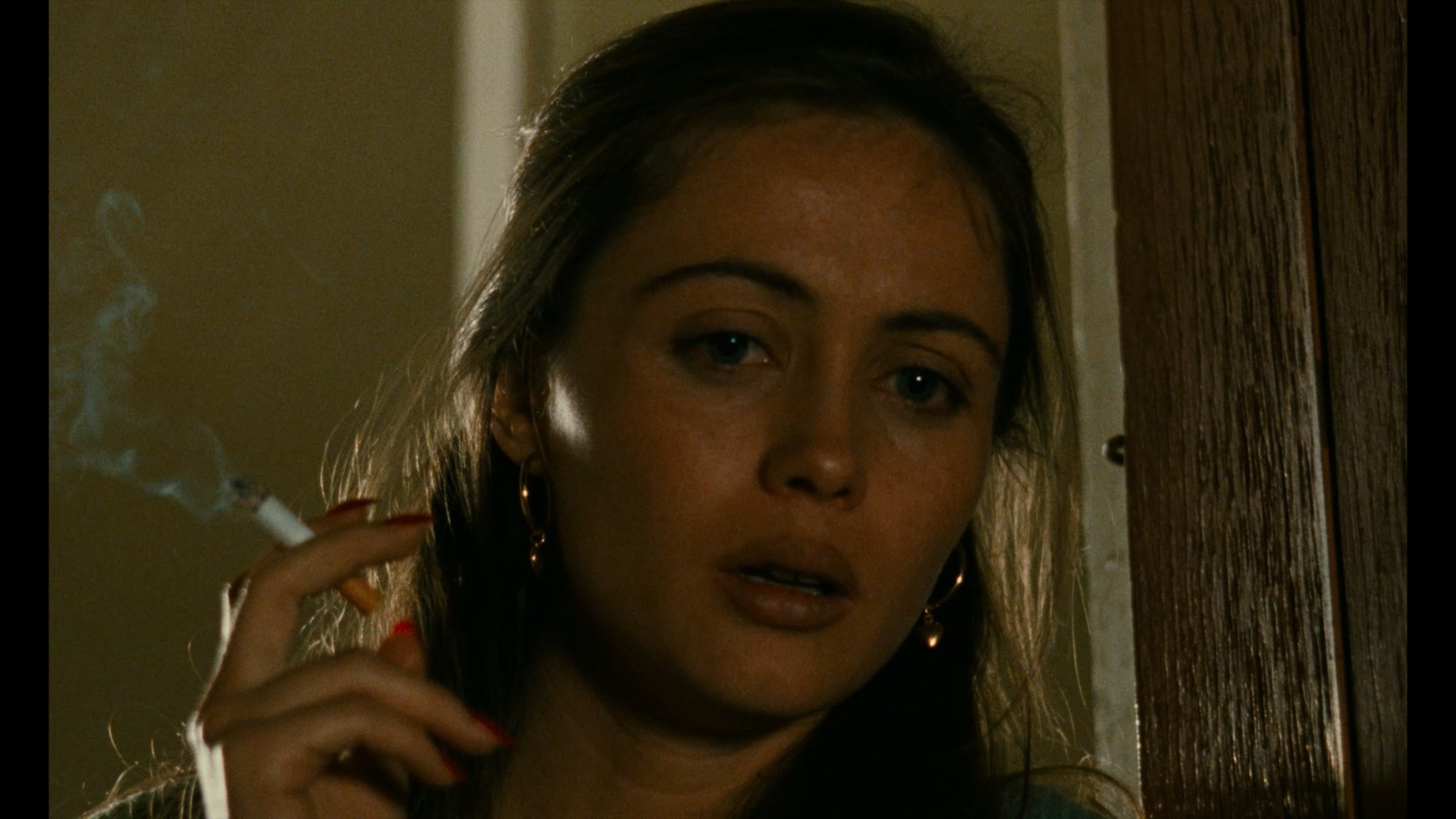 Of course, it's also fascinating to see one master bringing to life the dream project of another, similar in theory to what Spielberg did with Kubrick's A.I. but obviously worlds apart in
Of course, it's also fascinating to see one master bringing to life the dream project of another, similar in theory to what Spielberg did with Kubrick's A.I. but obviously worlds apart in 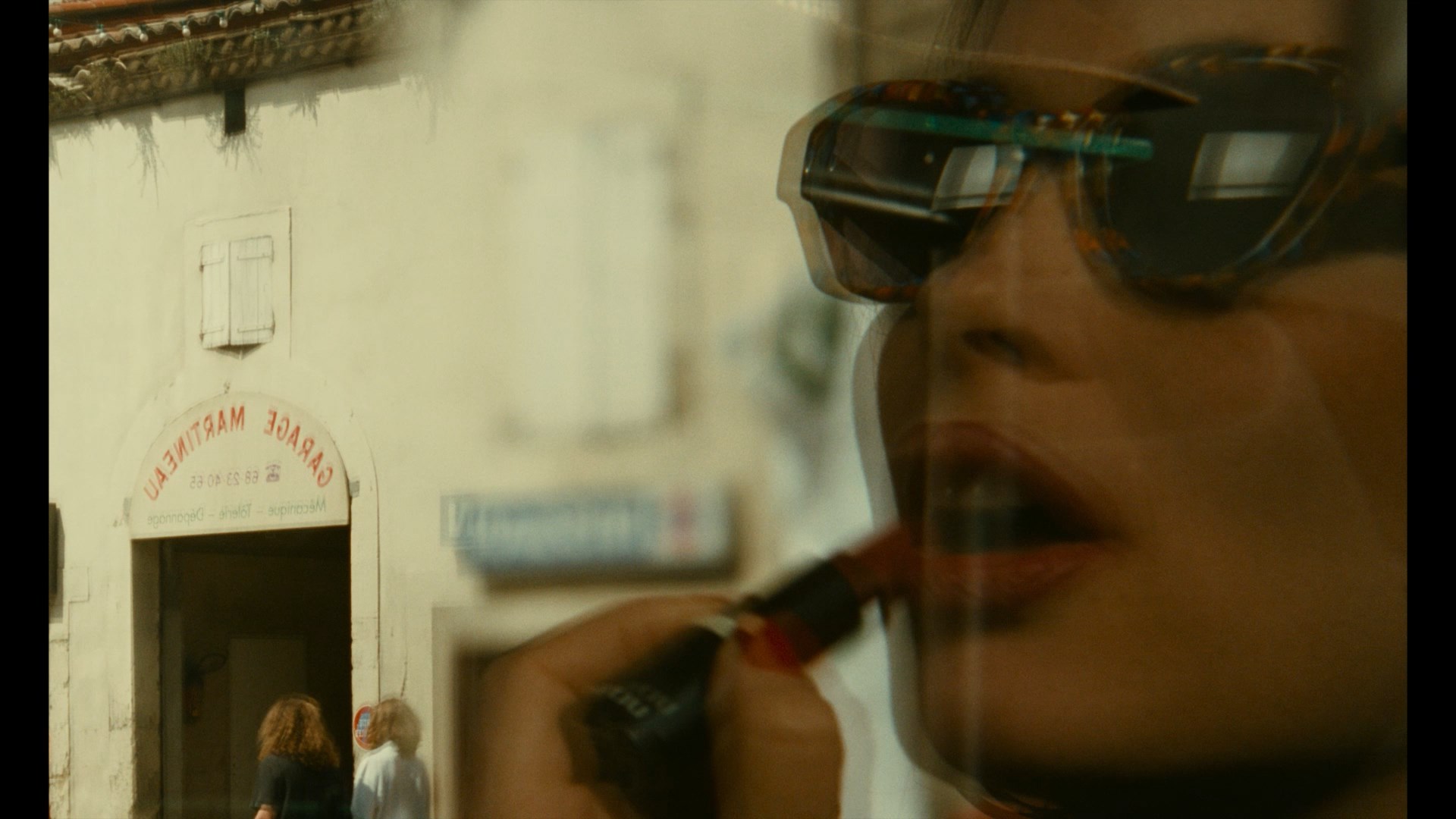 execution.
execution.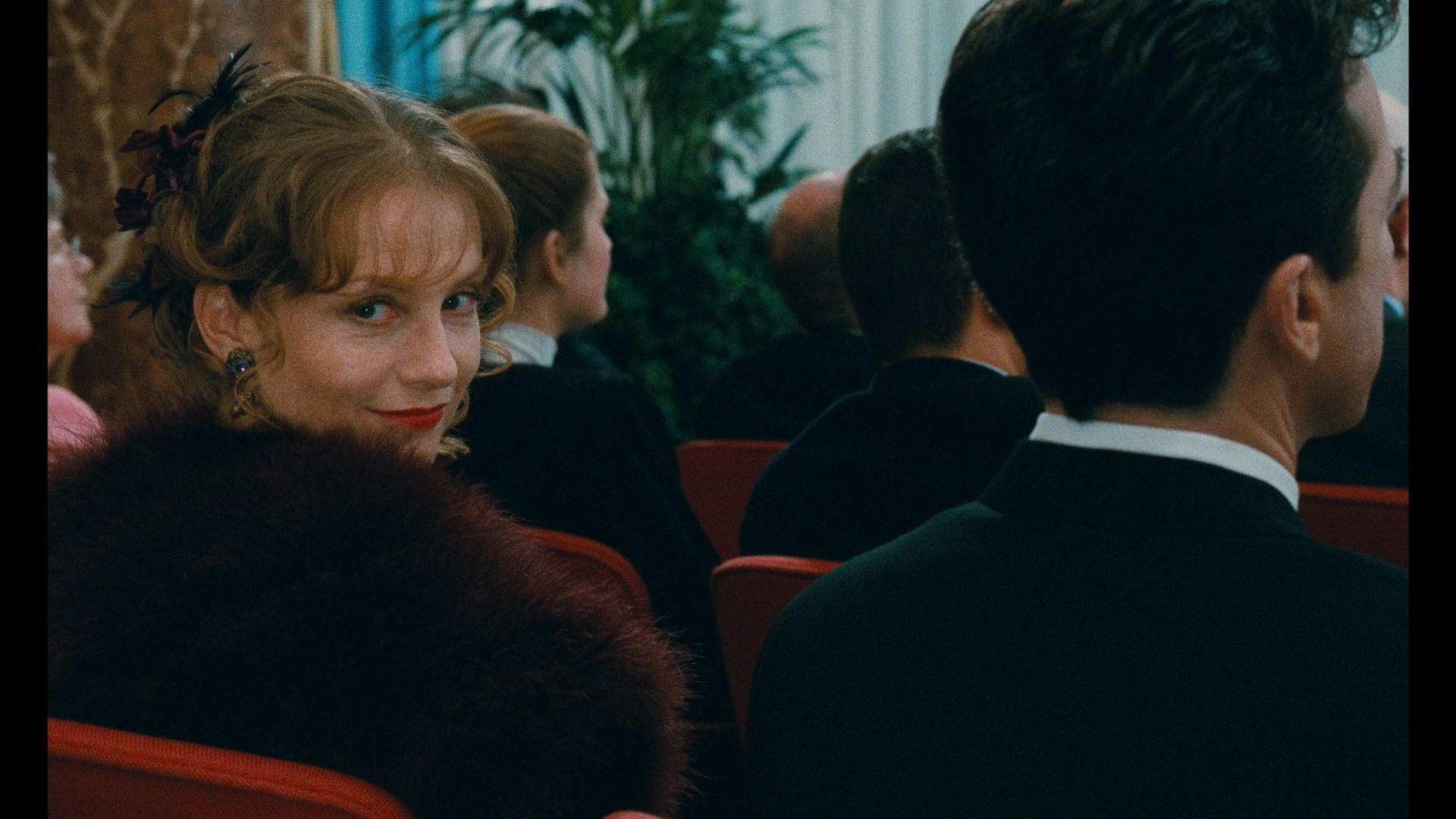
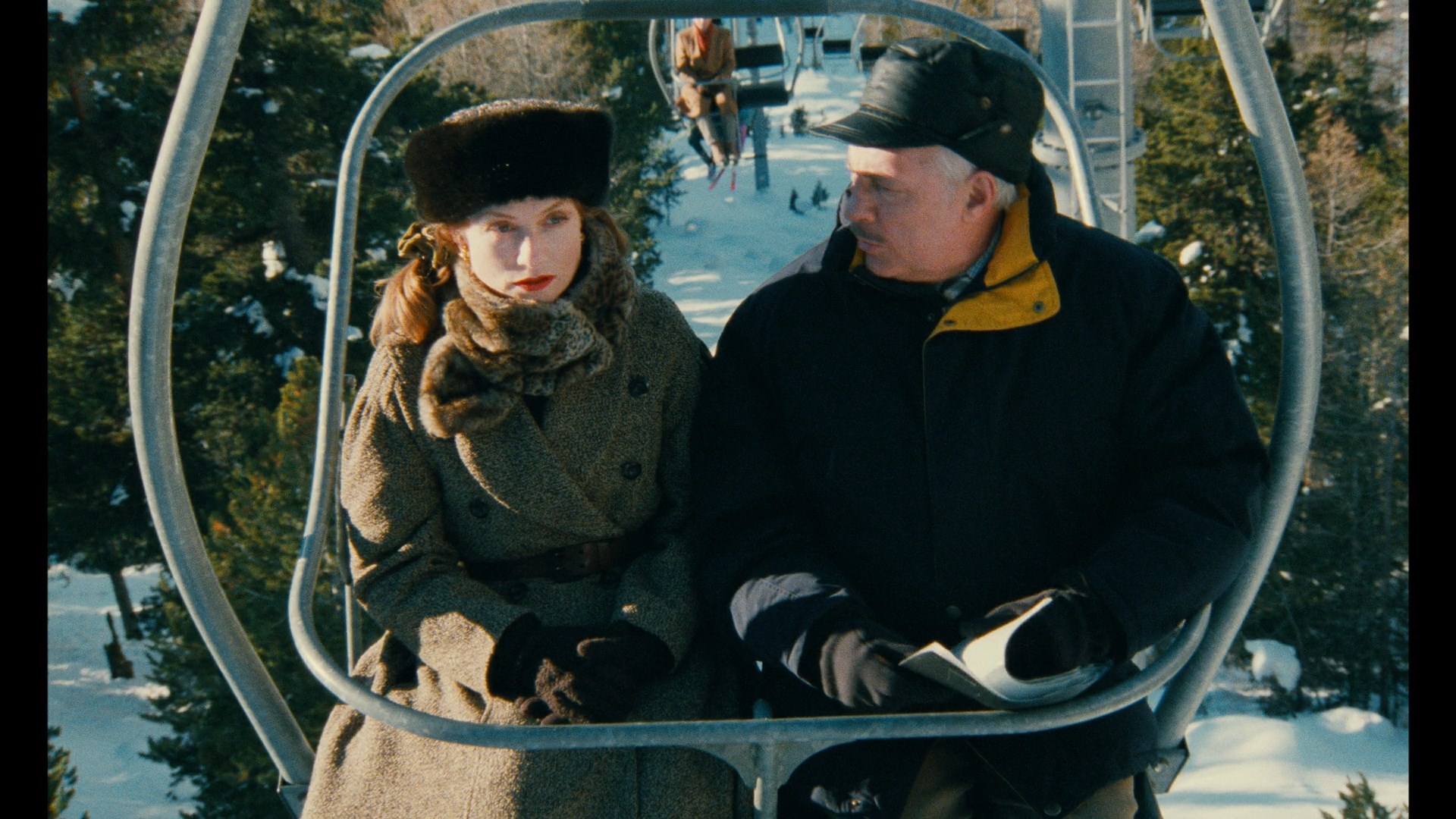 gallery.
gallery.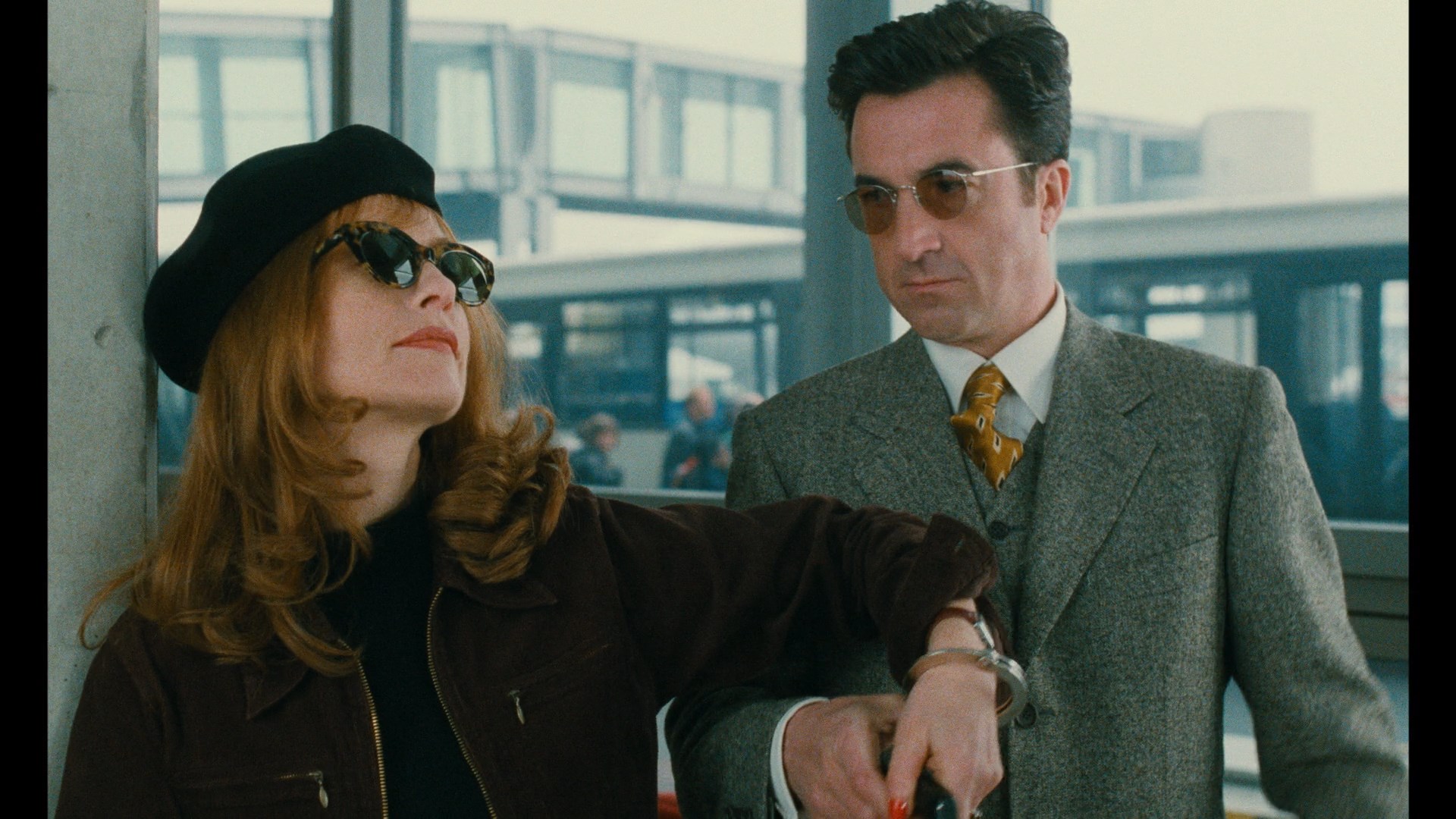 It's clear he assumes we've seen our fair share of con artist movies and already know the ropes, so what you get here are some welcome diversions from the formula with a very wry and sunny Huppert doing a complete 180 from her previous Chabrol film, La
It's clear he assumes we've seen our fair share of con artist movies and already know the ropes, so what you get here are some welcome diversions from the formula with a very wry and sunny Huppert doing a complete 180 from her previous Chabrol film, La 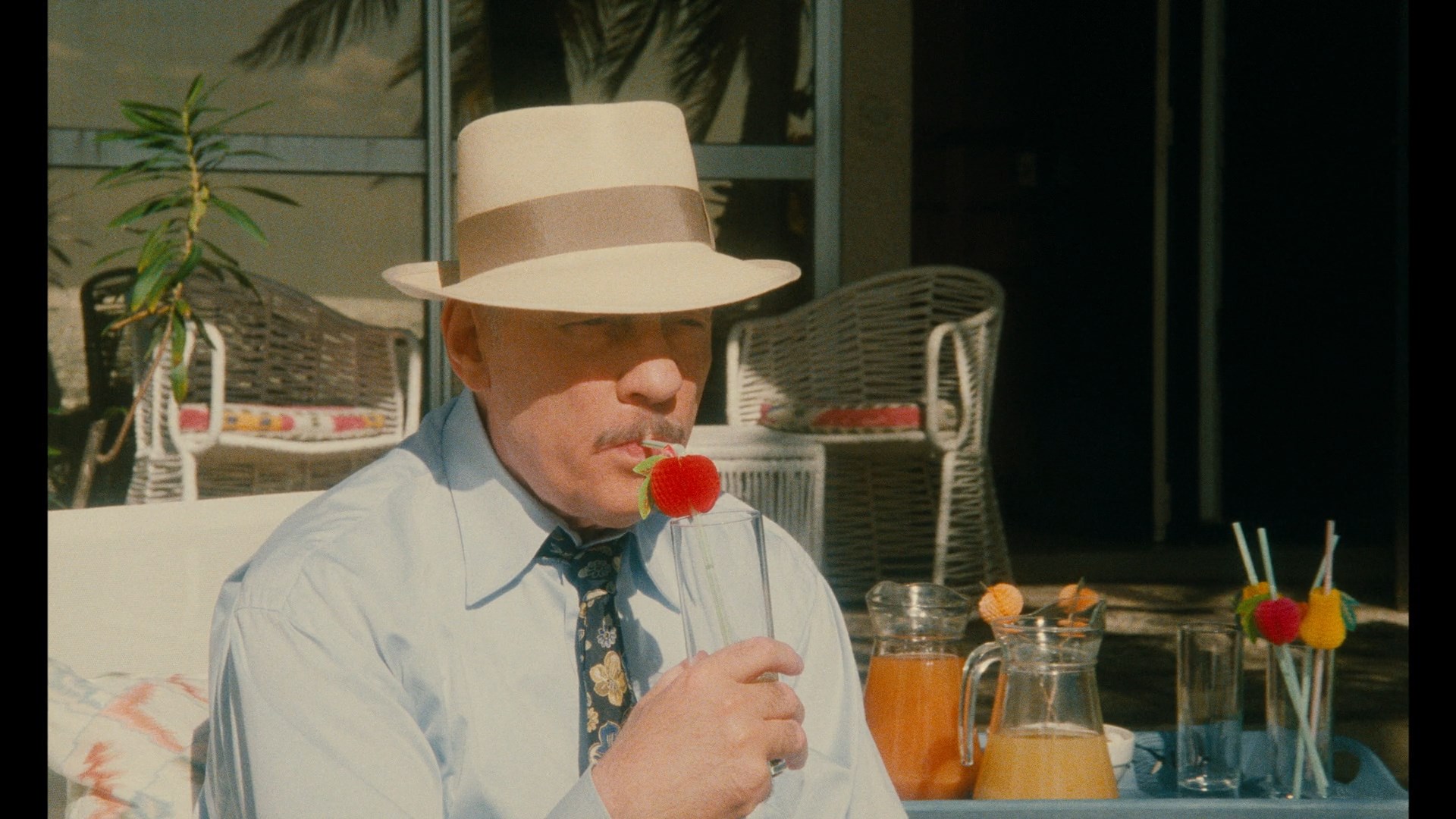 Cérémonie. Released in the U.S. by New Yorker Films both theatrically and on VHS, this eventually went over to Cohen for a pretty nice Blu-ray release in 2016 featuring a Major and Klein commentary, a reissue trailer, and a "Many Forms of Love" interview with Cluzet (42m32s) by New York Film Festival director Kent Jones covering the actor's work with Chabrol. The Arrow Blu-ray is the only one of the second batch to retain the yellow leaning, though it's toned down here relatively speaking and not that bad once your eyes get used to it after a while. Otherwise it looks good with fine detail throughout. A new commentary by Barry Forshaw and Sean Hogan helps put the film in context within Chabrol's career and really goes into the nature of how his tendency to crank out films at a rapid pace hampered his status among the auteur-centric crowd but ultimately may have helped him in the long run. In "Chabrol’s 'Soap Bubble'" (14m36s), Catherine Dousteyssier-Khoze (author of Claude Chabrol: The Aesthetics of Opacity) uses Chabrol's own term for this film (thus the title) as a jumping-off point for analyzing some of his more playful efforts like this and Blue Panther, with an exploration of how production design choices reflect his twisty stories. The Zoom conversation "Film as a Family Affair" (38m11s) features Chabrol's stepdaughter and frequent assistant, Cécile Maistre-Chabrol, chatting about her first exposure to show business through the theater, their working relationship, his pun-loving personality, and his methods on set. Also included are a Magny intro (2m28s) about the film's significance to Chabrol despite its middling box office reception in France, scene specific Chabrol commentaries (24m20s), an EPK-style vintage making-of featurette (8m22s) with the cast and crew, an interview with Huppert (25m38s) conducted by MK2 covering her first meeting with Chabrol and their working process together, the French trailer, and a stills gallery.
Cérémonie. Released in the U.S. by New Yorker Films both theatrically and on VHS, this eventually went over to Cohen for a pretty nice Blu-ray release in 2016 featuring a Major and Klein commentary, a reissue trailer, and a "Many Forms of Love" interview with Cluzet (42m32s) by New York Film Festival director Kent Jones covering the actor's work with Chabrol. The Arrow Blu-ray is the only one of the second batch to retain the yellow leaning, though it's toned down here relatively speaking and not that bad once your eyes get used to it after a while. Otherwise it looks good with fine detail throughout. A new commentary by Barry Forshaw and Sean Hogan helps put the film in context within Chabrol's career and really goes into the nature of how his tendency to crank out films at a rapid pace hampered his status among the auteur-centric crowd but ultimately may have helped him in the long run. In "Chabrol’s 'Soap Bubble'" (14m36s), Catherine Dousteyssier-Khoze (author of Claude Chabrol: The Aesthetics of Opacity) uses Chabrol's own term for this film (thus the title) as a jumping-off point for analyzing some of his more playful efforts like this and Blue Panther, with an exploration of how production design choices reflect his twisty stories. The Zoom conversation "Film as a Family Affair" (38m11s) features Chabrol's stepdaughter and frequent assistant, Cécile Maistre-Chabrol, chatting about her first exposure to show business through the theater, their working relationship, his pun-loving personality, and his methods on set. Also included are a Magny intro (2m28s) about the film's significance to Chabrol despite its middling box office reception in France, scene specific Chabrol commentaries (24m20s), an EPK-style vintage making-of featurette (8m22s) with the cast and crew, an interview with Huppert (25m38s) conducted by MK2 covering her first meeting with Chabrol and their working process together, the French trailer, and a stills gallery.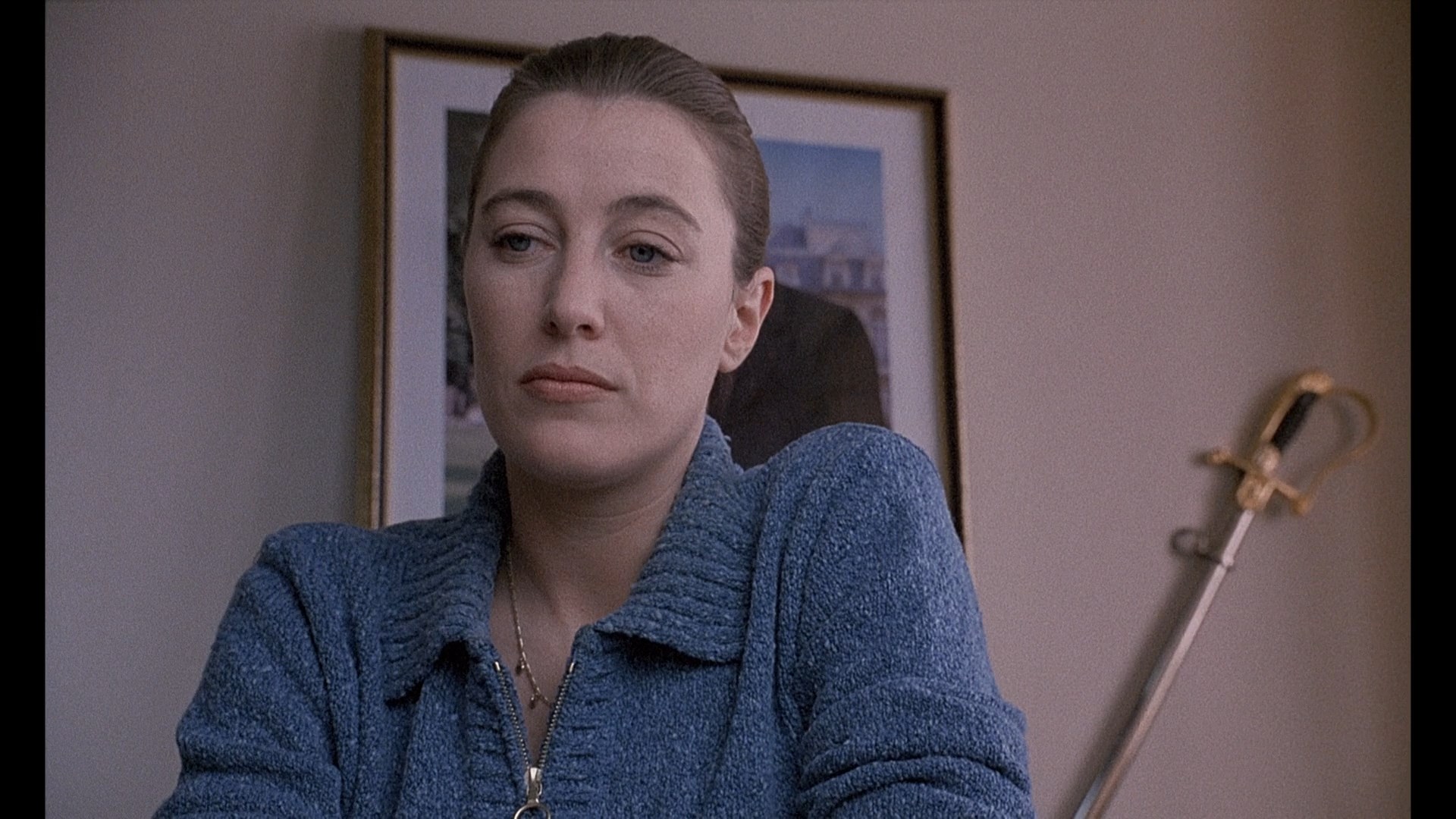 Next we move to 1999's The
Next we move to 1999's The 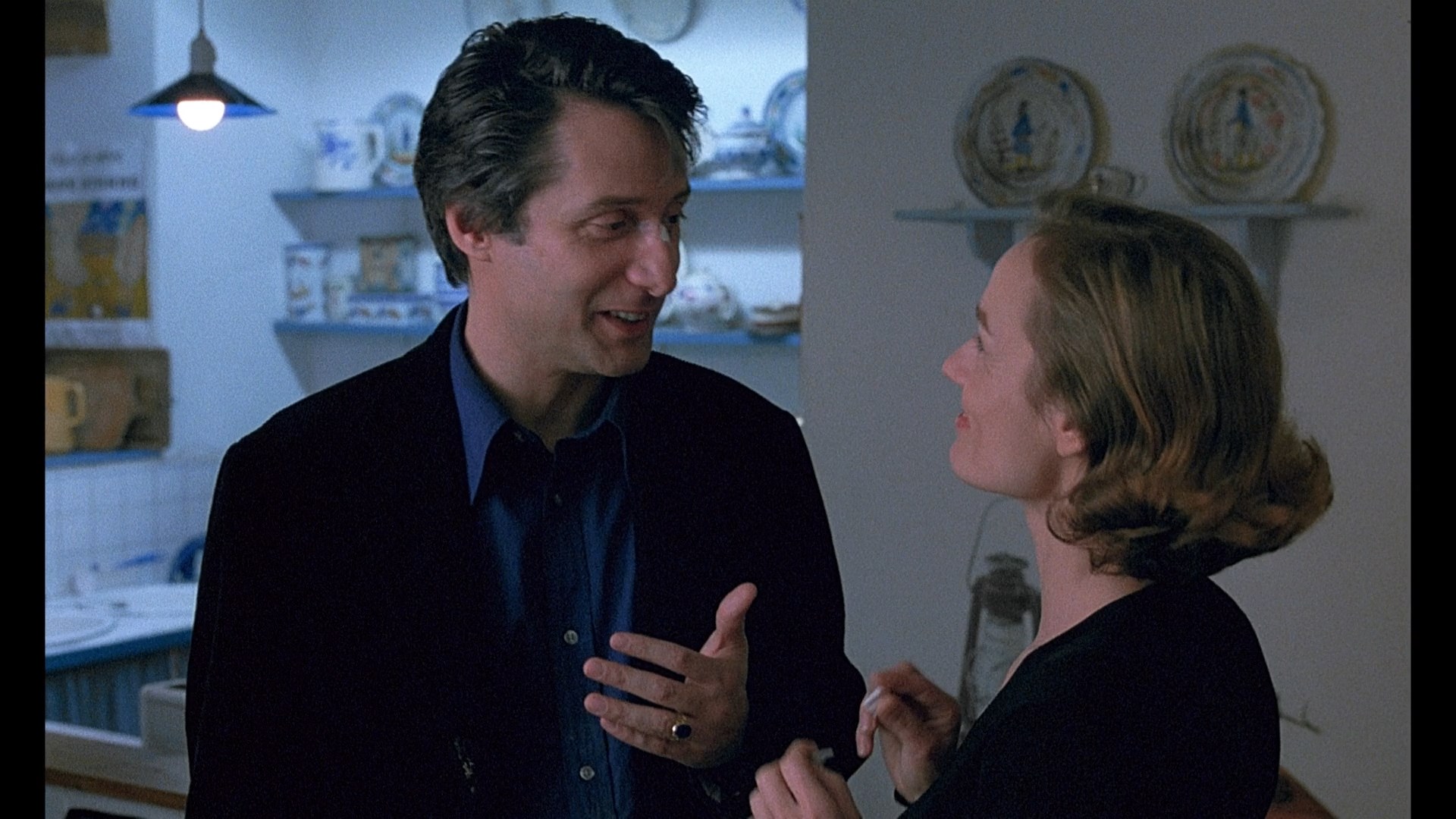 Color of Lies (Au cœur du mensonge), a fascinating little game of narrative bait and switch set in Brittany. The close-knit community is rocked when a ten-year-old girl is found slain in the woods, with suspicion immediately falling on the last person to see her alive after school, art teacher René (Gamblin). As rumors spread around town, the chief of police, Frédérique (Tedeschi), doesn't help the perception that he's responsible, a development that puts a strain on his relationship with his optimistic wife, Vivianne (Bonnaire), a local nurse. Complicating things even further is the presence of a TV reporter, Germain-Roland (de Caunes), who seems to be forming a potentially romantic connection with Vivianne.
Color of Lies (Au cœur du mensonge), a fascinating little game of narrative bait and switch set in Brittany. The close-knit community is rocked when a ten-year-old girl is found slain in the woods, with suspicion immediately falling on the last person to see her alive after school, art teacher René (Gamblin). As rumors spread around town, the chief of police, Frédérique (Tedeschi), doesn't help the perception that he's responsible, a development that puts a strain on his relationship with his optimistic wife, Vivianne (Bonnaire), a local nurse. Complicating things even further is the presence of a TV reporter, Germain-Roland (de Caunes), who seems to be forming a potentially romantic connection with Vivianne.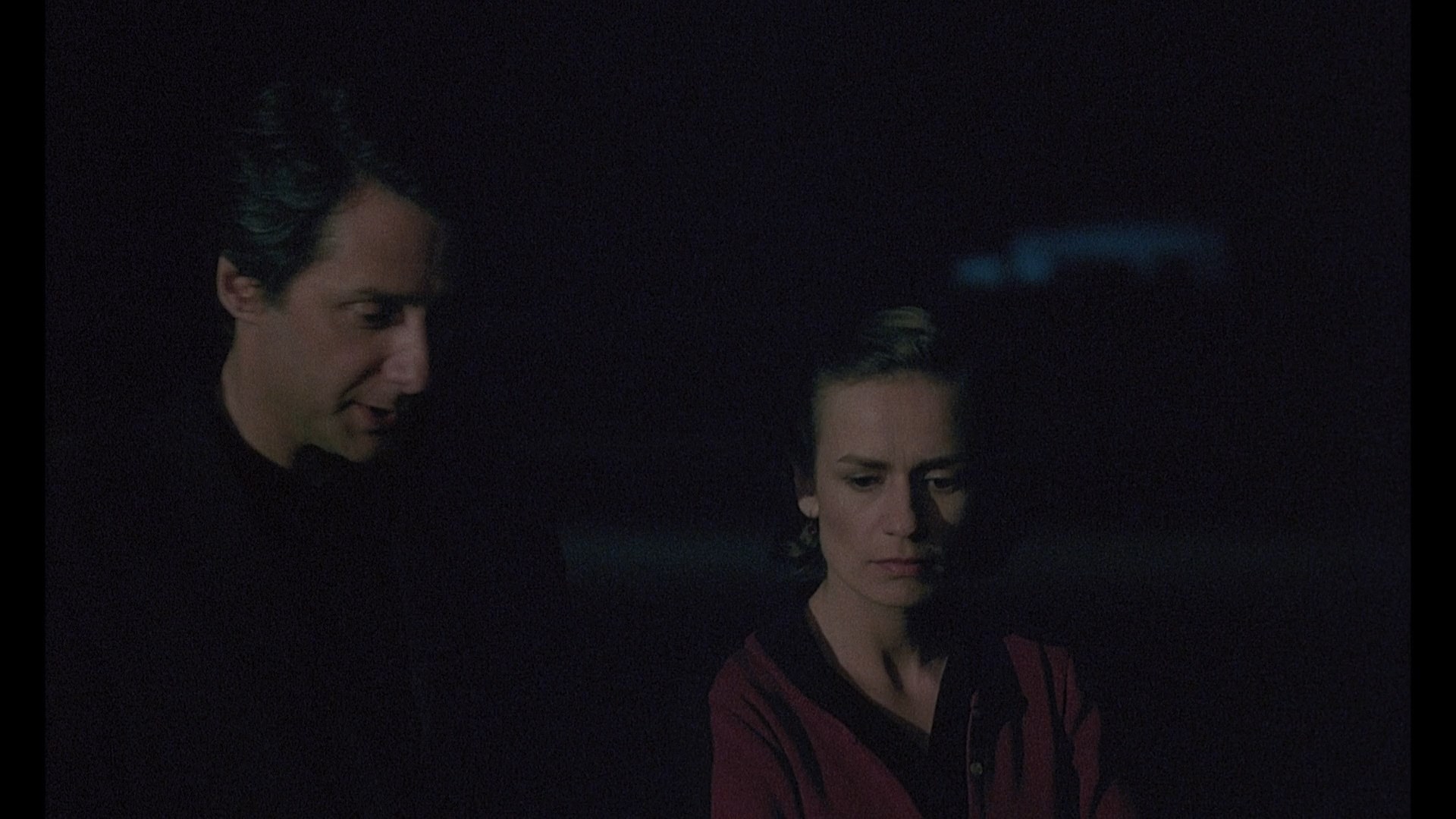 spiritual successor to Clouzot's Le corbeau. Despite the rather bland title, this one's also been available on home video pretty much nonstop since its release including a theatrical run and DVD from Kino. Cohen eventually
spiritual successor to Clouzot's Le corbeau. Despite the rather bland title, this one's also been available on home video pretty much nonstop since its release including a theatrical run and DVD from Kino. Cohen eventually 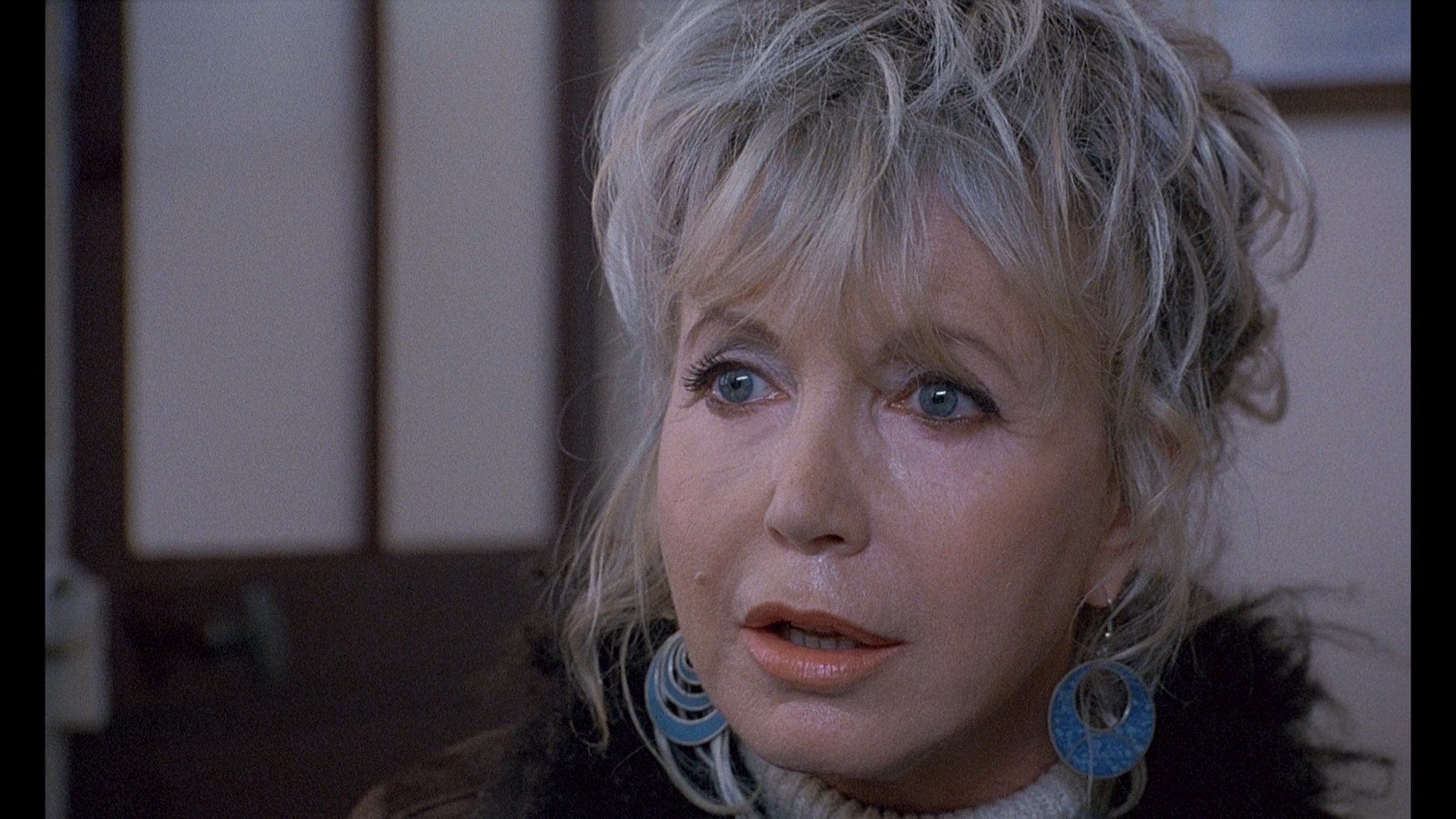 inherited it for Blu-ray and a theatrical rerelease along with most of the titles mentioned above, with a transfer that looked pretty decent -- neither the best nor the worst, and adhering to the original cool color scheme with some visible edge enhancement being the only real irritant. Extras on that disc include a Major and Klein commentary and the 2014 reissue trailer. That same transfer is replicated verbatim on the Arrow disc, which is fine. A new audio commentary by Forshaw and Hogan is another brisk chat about the frequent Hitchcock comparisons, the recurring nasty fates for children, the influence of Fritz Lang, and more. In "Nothing Is Sacred" (13m57s), film critic Scout Tafoya provides a video essay looking at how the 70-year-old filmmaker adopting music, art, and other aesthetic devices to keep his work current while maintaining his own distinctive style. Also included are a great behind the scenes featurette (25m47s) with tons of production footage, an archive introduction by film scholar Joël Magny (2m33s), select scene commentaries by Chabrol (20m8s), the French trailer, and an image gallery. The announced specs list also has a David Kalat piece, "What's Eating Claude Chabrol?," which seems to have gotten dropped along the way.
inherited it for Blu-ray and a theatrical rerelease along with most of the titles mentioned above, with a transfer that looked pretty decent -- neither the best nor the worst, and adhering to the original cool color scheme with some visible edge enhancement being the only real irritant. Extras on that disc include a Major and Klein commentary and the 2014 reissue trailer. That same transfer is replicated verbatim on the Arrow disc, which is fine. A new audio commentary by Forshaw and Hogan is another brisk chat about the frequent Hitchcock comparisons, the recurring nasty fates for children, the influence of Fritz Lang, and more. In "Nothing Is Sacred" (13m57s), film critic Scout Tafoya provides a video essay looking at how the 70-year-old filmmaker adopting music, art, and other aesthetic devices to keep his work current while maintaining his own distinctive style. Also included are a great behind the scenes featurette (25m47s) with tons of production footage, an archive introduction by film scholar Joël Magny (2m33s), select scene commentaries by Chabrol (20m8s), the French trailer, and an image gallery. The announced specs list also has a David Kalat piece, "What's Eating Claude Chabrol?," which seems to have gotten dropped along the way.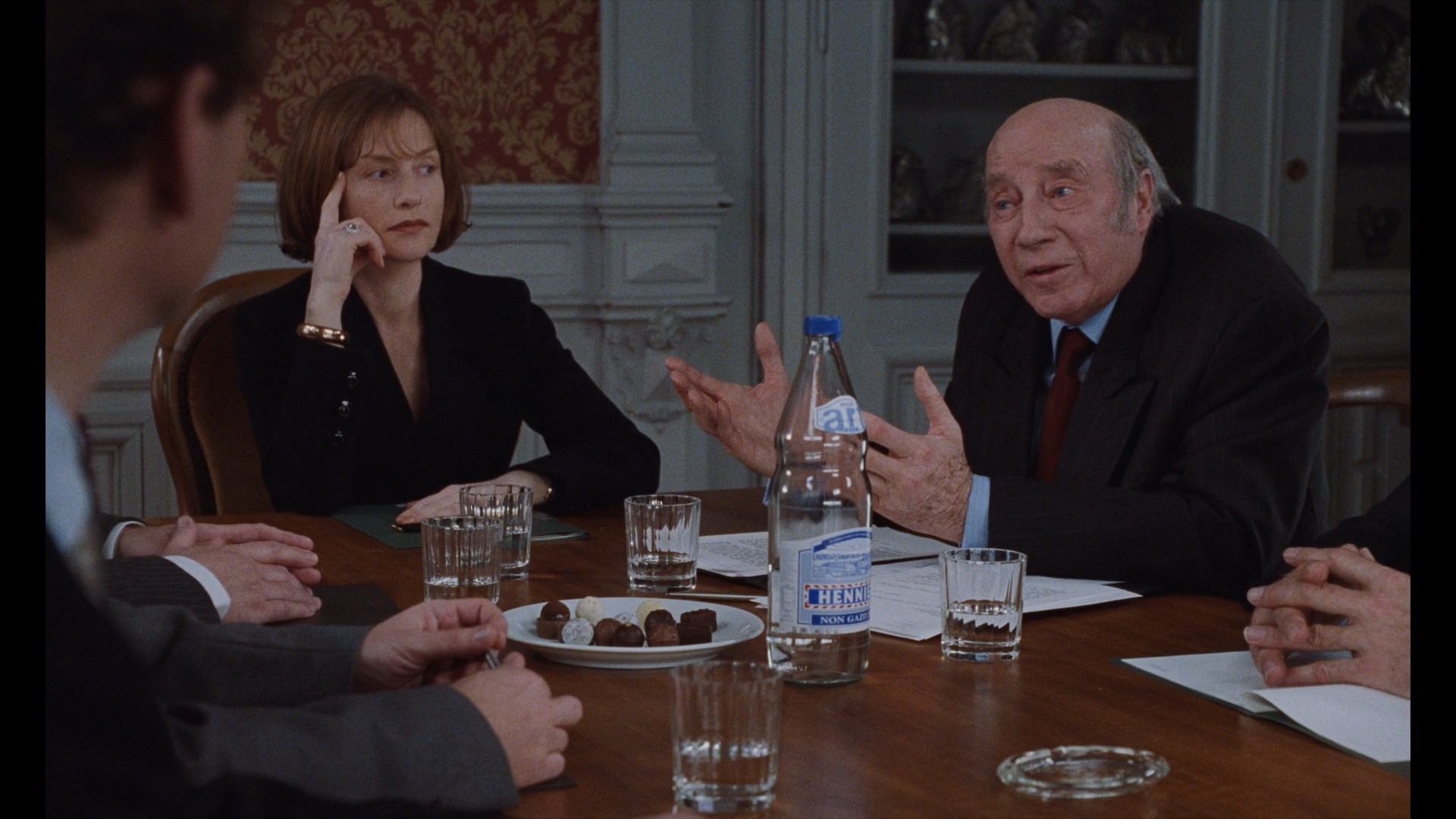 The sixth pairing of the chameleon-like Huppert and Chabrol, Nightcap (released
The sixth pairing of the chameleon-like Huppert and Chabrol, Nightcap (released 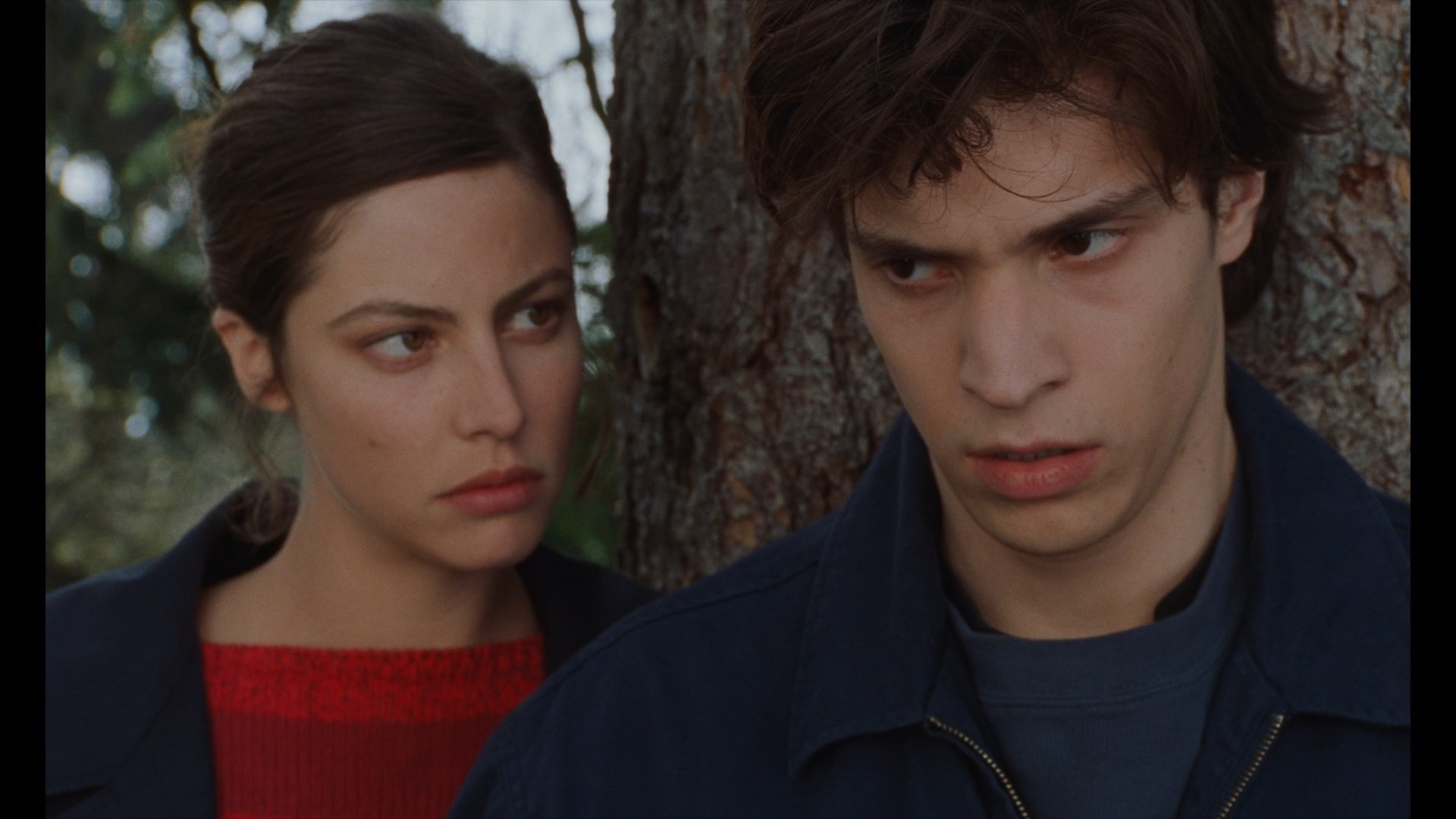 theatrically almost everywhere as Merci pour le chocolat) returns the director to his standard territory of sadistic mind games, filled with characters either brimming with psychosis or clueless to the dangers around them. As with many of his previous thrillers, Chabrol adapts a mannered British literary mystery (in this case, Charlotte Armstrong's The Chocolate Cobweb) and transforms it into a work that is undeniably stamped with his eccentric and irresistible personality. In the Swiss province of Lausanne, elegant chocolate magnate and newly married Mika (Huppert) enjoys a tranquil life with her pianist husband, André (pop star Dutronc). Also on the scene are Guillaume (Pauly), André's son from a previous marriage (which ended when his first wife died in a violent car accident), and young Jeanne ( Mouglalis), a young piano prodigy who learns of a hospital mix-up in which André thought she might be his daughter. Jeanne slowly wiles her way into the maestro's life, much to Mika's frustration; even more strangely, Jeanne begins to suspect that Mika might be tampering with the family's hot chocolate.
theatrically almost everywhere as Merci pour le chocolat) returns the director to his standard territory of sadistic mind games, filled with characters either brimming with psychosis or clueless to the dangers around them. As with many of his previous thrillers, Chabrol adapts a mannered British literary mystery (in this case, Charlotte Armstrong's The Chocolate Cobweb) and transforms it into a work that is undeniably stamped with his eccentric and irresistible personality. In the Swiss province of Lausanne, elegant chocolate magnate and newly married Mika (Huppert) enjoys a tranquil life with her pianist husband, André (pop star Dutronc). Also on the scene are Guillaume (Pauly), André's son from a previous marriage (which ended when his first wife died in a violent car accident), and young Jeanne ( Mouglalis), a young piano prodigy who learns of a hospital mix-up in which André thought she might be his daughter. Jeanne slowly wiles her way into the maestro's life, much to Mika's frustration; even more strangely, Jeanne begins to suspect that Mika might be tampering with the family's hot chocolate. 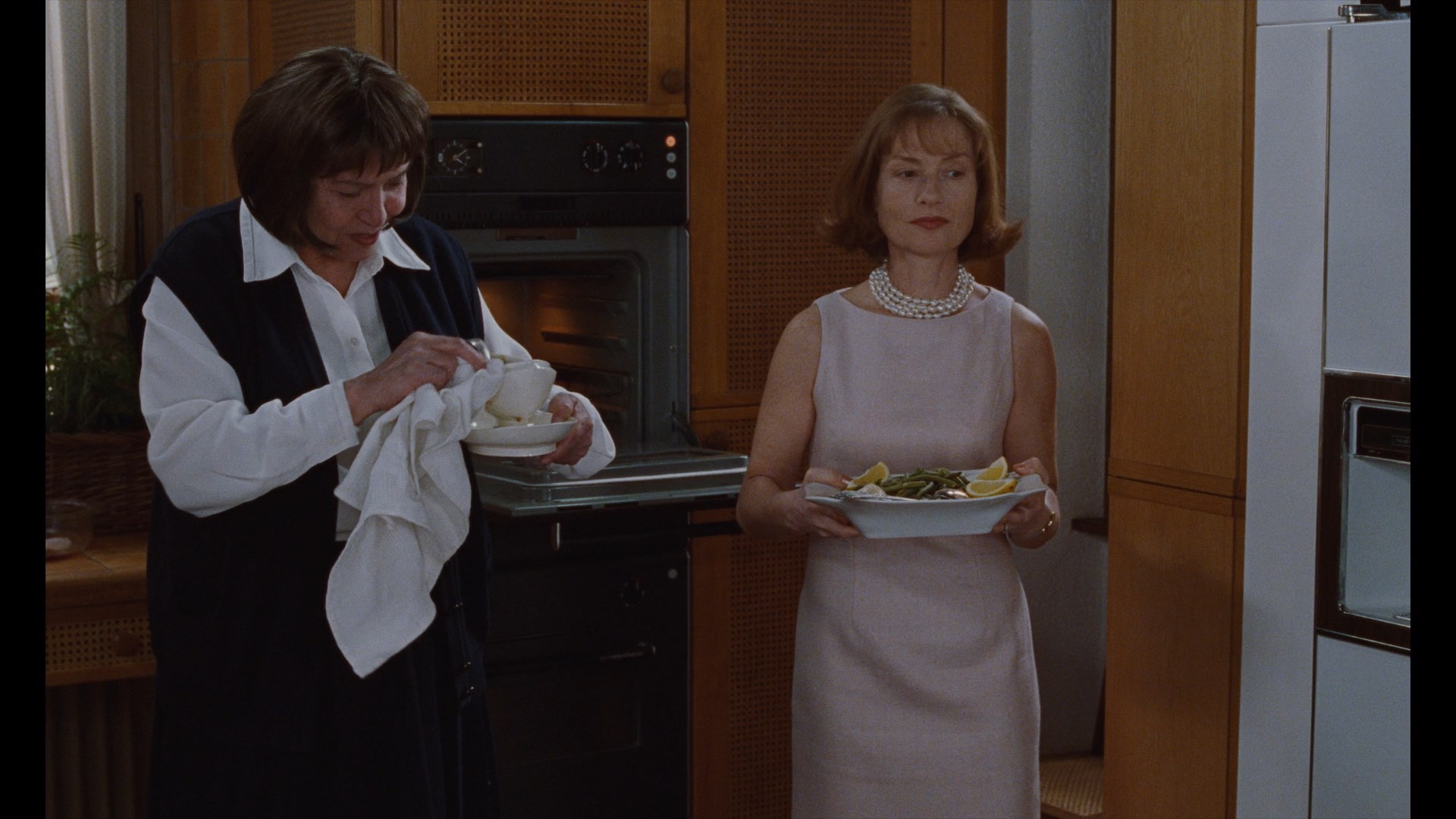 it's almost quaint in its quirky, stylish focus on a bourgeois family coming apart at the seams due to a few skeletons in the
it's almost quaint in its quirky, stylish focus on a bourgeois family coming apart at the seams due to a few skeletons in the 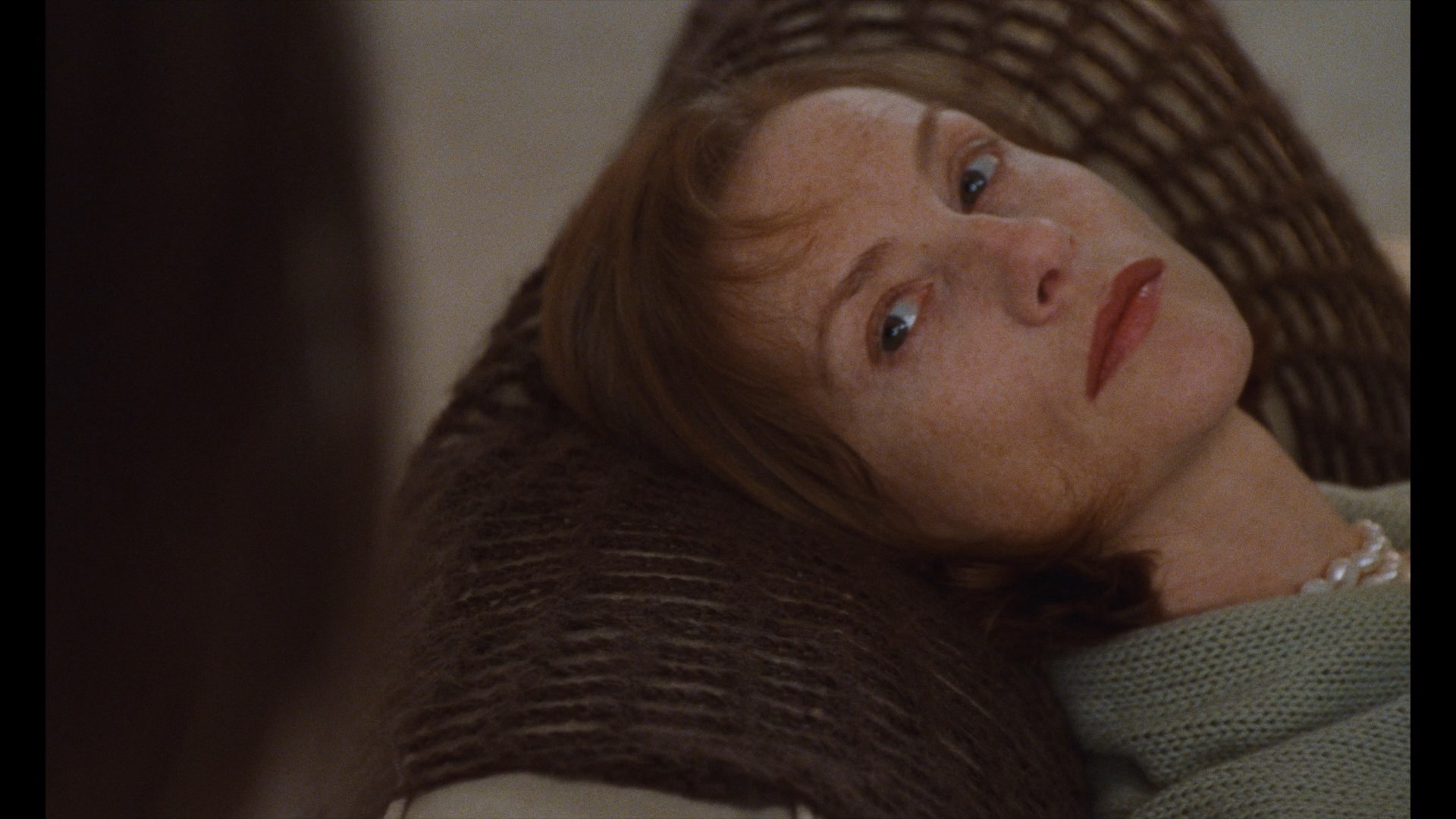 closet.
closet. 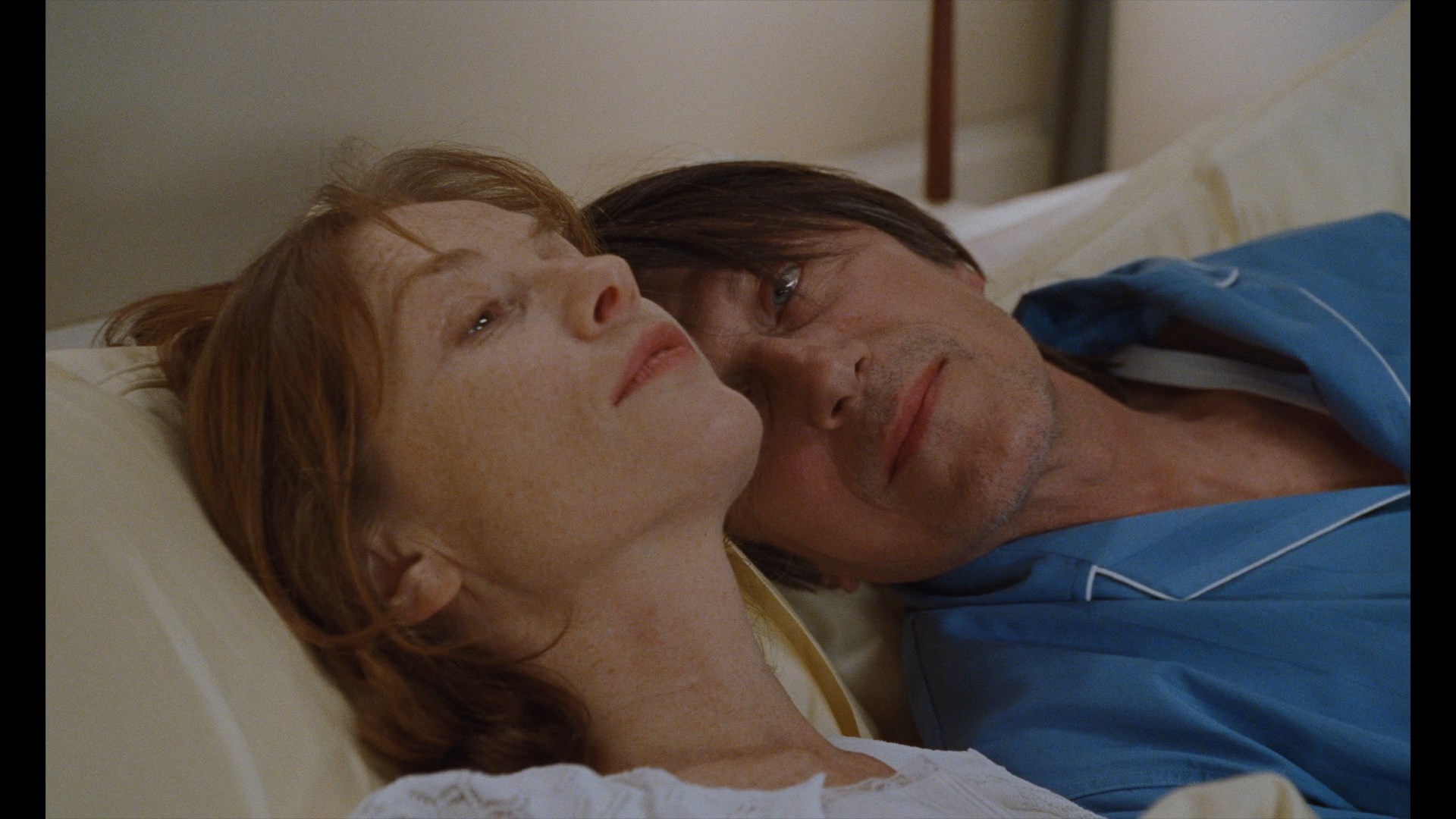 black levels that sap out almost all of the film's visual punch. Extras on that release include a Major and Klein commentary and the 2014 reissue trailer, so at least it's worth hanging on
black levels that sap out almost all of the film's visual punch. Extras on that release include a Major and Klein commentary and the 2014 reissue trailer, so at least it's worth hanging on 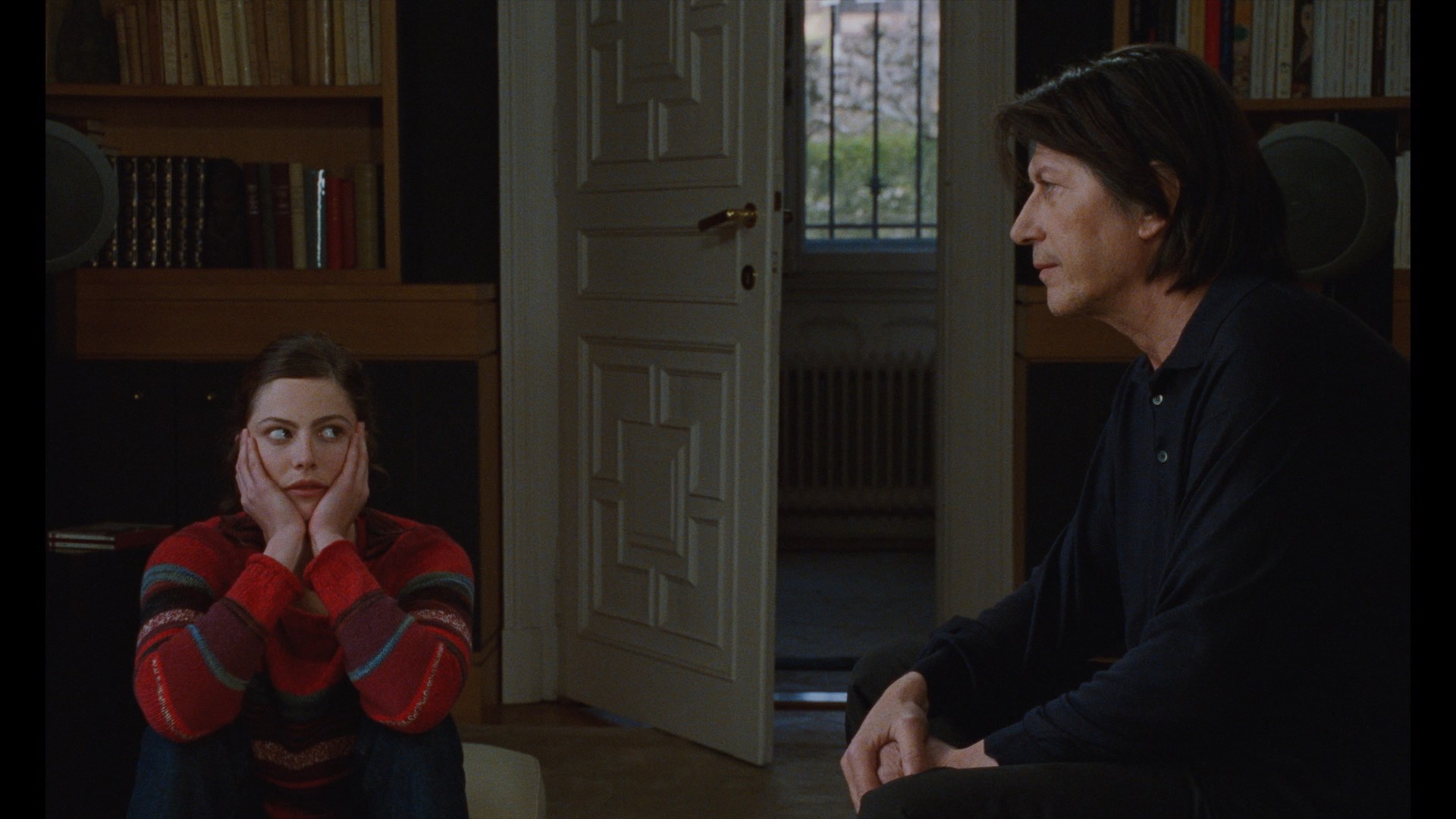 for the chat track if nothing else. Here the Arrow Blu-ray features a new 4K master that turns out to be a massive improvement in every possible way, delivering the best presentation of either Chabrol set and finally nailing the original theatrical appearance of the film. It's a real beauty. Justine Smith provides a really interesting new commentary that takes a different approach from the others in the set, sprinkling some background info here and there but coming off more like a conversation pointing out actor choices and interpretations along the way as well as her reading of how we're supposed to absorb the creative choices. It's a wise move as we've been inundated with Chabrol info by this point, coming off more like watching the film live with a perceptive film buff making you privy to her thought processes about the film. Very nicely done. Tafoya returns for "When I Pervert Good..." (11m15s), a short but worthwhile analysis of this film as an exemplar of Chabrol's approach as a grand master in the last decade of his career with his family members regularly involved as well. Then you get an archival Magny intro (3m11s), Chabrol scene commentaries (43m48s), the archival Huppert DVD interview (7m6s) about Chabrol's love of paradoxes, a funny archival interview with Dutronc (32m2s) puffing on the biggest cigar you've ever seen while sitting at the piano, the vintage making-of featurette (26m5s), a screen test for Anna Mouglalis (10m33s), the French trailer, and an image gallery.
for the chat track if nothing else. Here the Arrow Blu-ray features a new 4K master that turns out to be a massive improvement in every possible way, delivering the best presentation of either Chabrol set and finally nailing the original theatrical appearance of the film. It's a real beauty. Justine Smith provides a really interesting new commentary that takes a different approach from the others in the set, sprinkling some background info here and there but coming off more like a conversation pointing out actor choices and interpretations along the way as well as her reading of how we're supposed to absorb the creative choices. It's a wise move as we've been inundated with Chabrol info by this point, coming off more like watching the film live with a perceptive film buff making you privy to her thought processes about the film. Very nicely done. Tafoya returns for "When I Pervert Good..." (11m15s), a short but worthwhile analysis of this film as an exemplar of Chabrol's approach as a grand master in the last decade of his career with his family members regularly involved as well. Then you get an archival Magny intro (3m11s), Chabrol scene commentaries (43m48s), the archival Huppert DVD interview (7m6s) about Chabrol's love of paradoxes, a funny archival interview with Dutronc (32m2s) puffing on the biggest cigar you've ever seen while sitting at the piano, the vintage making-of featurette (26m5s), a screen test for Anna Mouglalis (10m33s), the French trailer, and an image gallery. 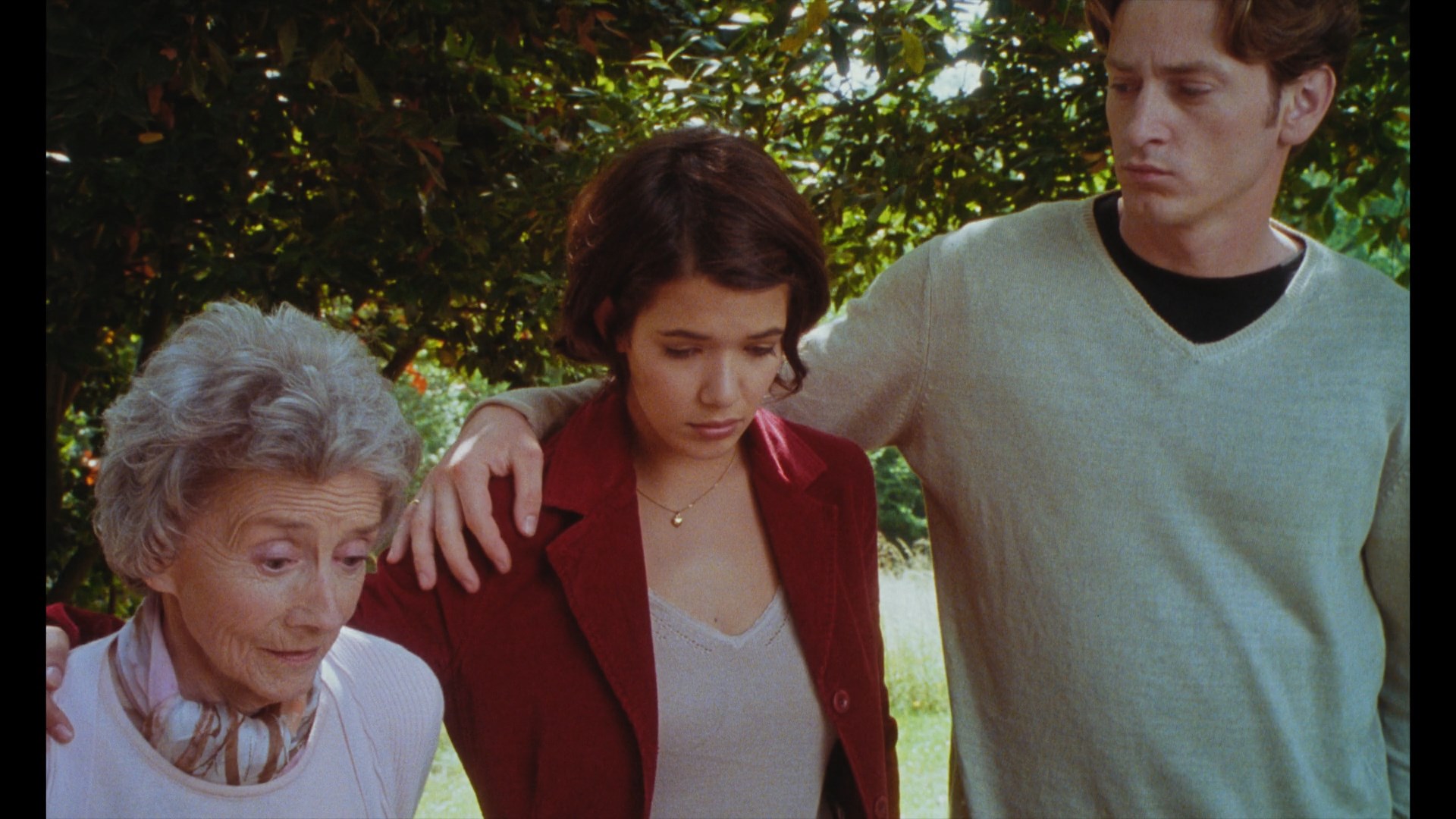 Finally we reach Chabrol's 50th feature,
Finally we reach Chabrol's 50th feature, 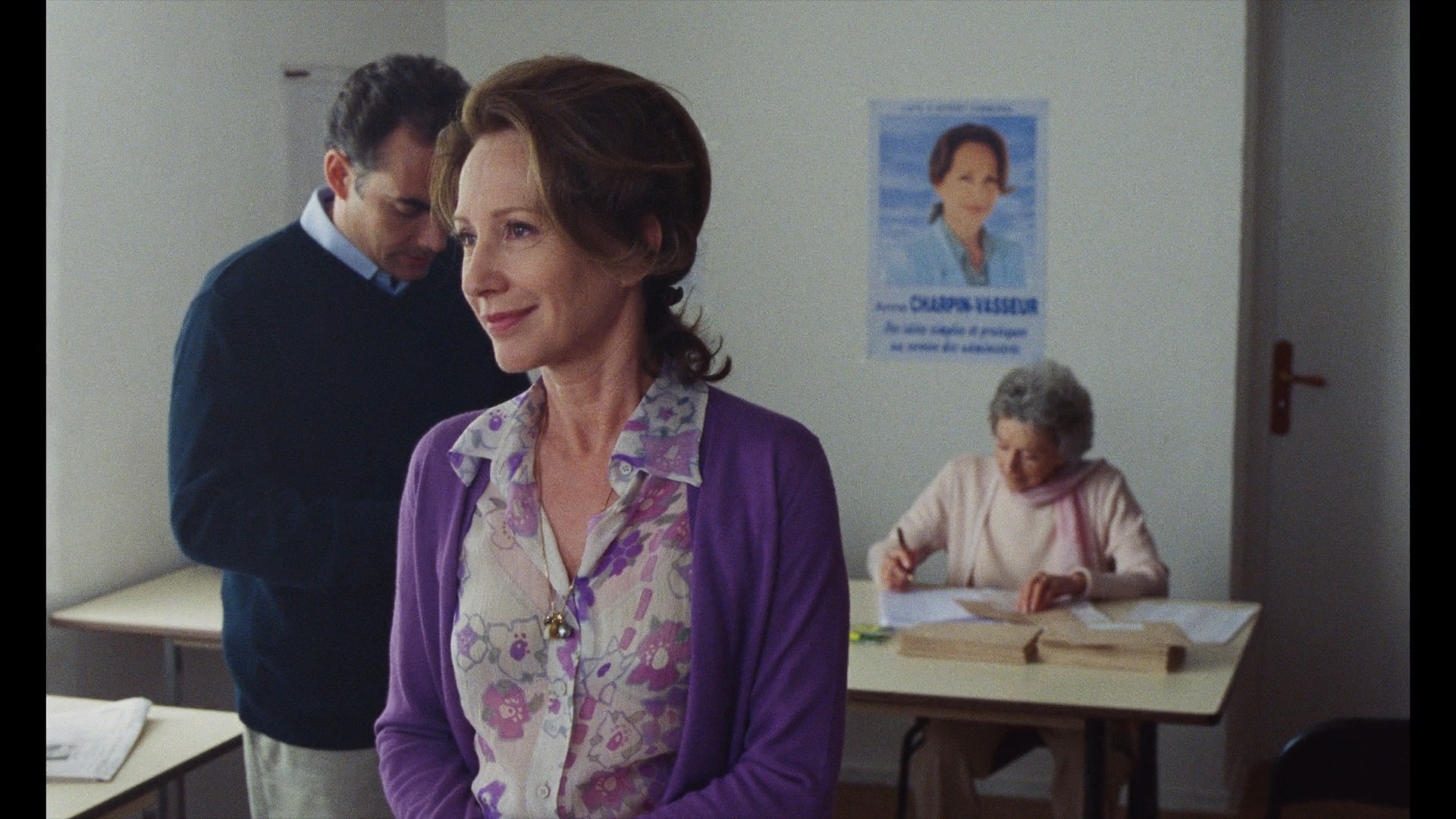 2003's The Flower of Evil (La fleur du mal), which is actually a lot more cheerful and ultimately benign than the title might make you believe. Here the great Nathalie Baye heads a lively ensemble cast as Anne, the middle-aged wife in a wine-loving family in Bourdeaux who opens some skeletons in the closet when she decides to run for local public office. Essentially the gatekeeper for the family's security is the perpetually smiling eldest member, Aunt Line (Flon), while young lawyer François (Magimel) has just returned home from a years-long stay in America. He also has a very romantic attraction to his stepsister, psych student Michèle (Doutey), while old secrets involving Nazi sympathies within the family are tied to rumors of a possible homicide in their family tree. All of that comes to a head when poison pen leaflets start turning up that seem to be sabotaging Anne's campaign... and as we well know from the opening credits, a dead body's going to turn up sooner or later.
2003's The Flower of Evil (La fleur du mal), which is actually a lot more cheerful and ultimately benign than the title might make you believe. Here the great Nathalie Baye heads a lively ensemble cast as Anne, the middle-aged wife in a wine-loving family in Bourdeaux who opens some skeletons in the closet when she decides to run for local public office. Essentially the gatekeeper for the family's security is the perpetually smiling eldest member, Aunt Line (Flon), while young lawyer François (Magimel) has just returned home from a years-long stay in America. He also has a very romantic attraction to his stepsister, psych student Michèle (Doutey), while old secrets involving Nazi sympathies within the family are tied to rumors of a possible homicide in their family tree. All of that comes to a head when poison pen leaflets start turning up that seem to be sabotaging Anne's campaign... and as we well know from the opening credits, a dead body's going to turn up sooner or later.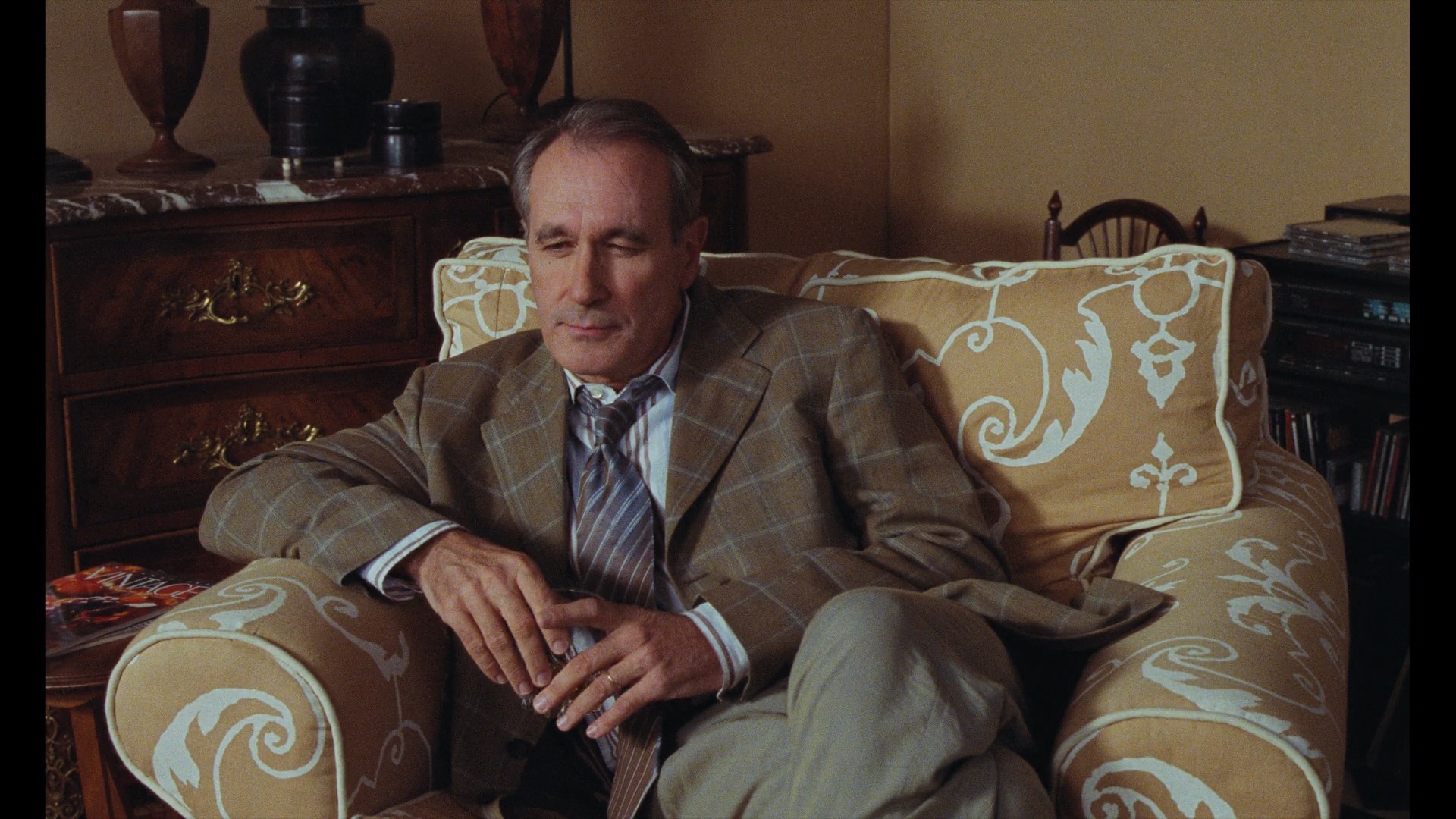 It's all handled in a subdued fashion (even the quasi-incestuous elements), complete with the usual stunning countryside scenery and some key bits involving bodies of water. Flon is especially good here with a juicy role that gives her the strongest
It's all handled in a subdued fashion (even the quasi-incestuous elements), complete with the usual stunning countryside scenery and some key bits involving bodies of water. Flon is especially good here with a juicy role that gives her the strongest 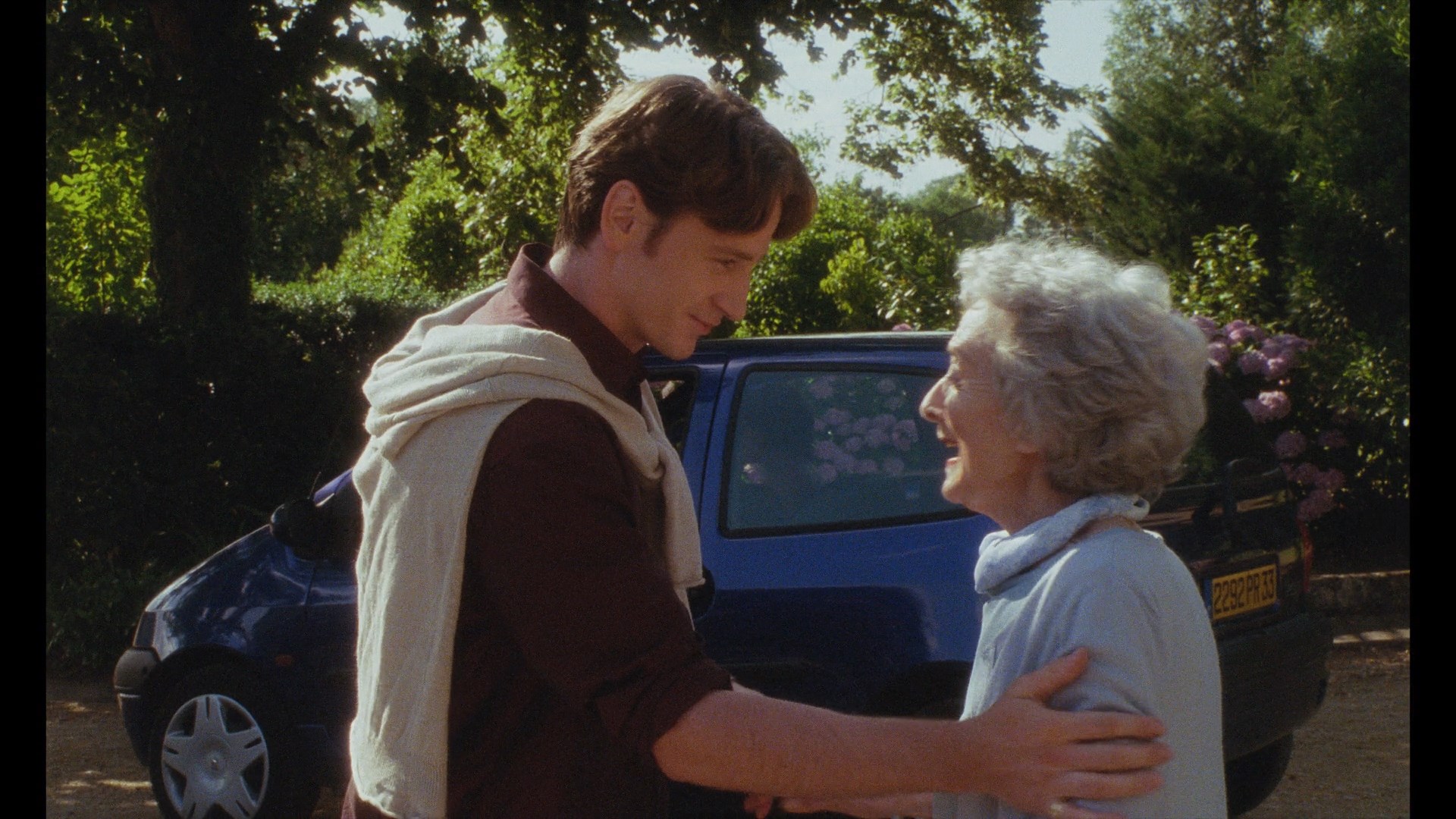 material, and while the ultimate effect can seem a bit lightweight compared to his top tier work, it's unquestionably Chabrol from start to finish and quite enjoyable as a kind of cinematic snack.
material, and while the ultimate effect can seem a bit lightweight compared to his top tier work, it's unquestionably Chabrol from start to finish and quite enjoyable as a kind of cinematic snack.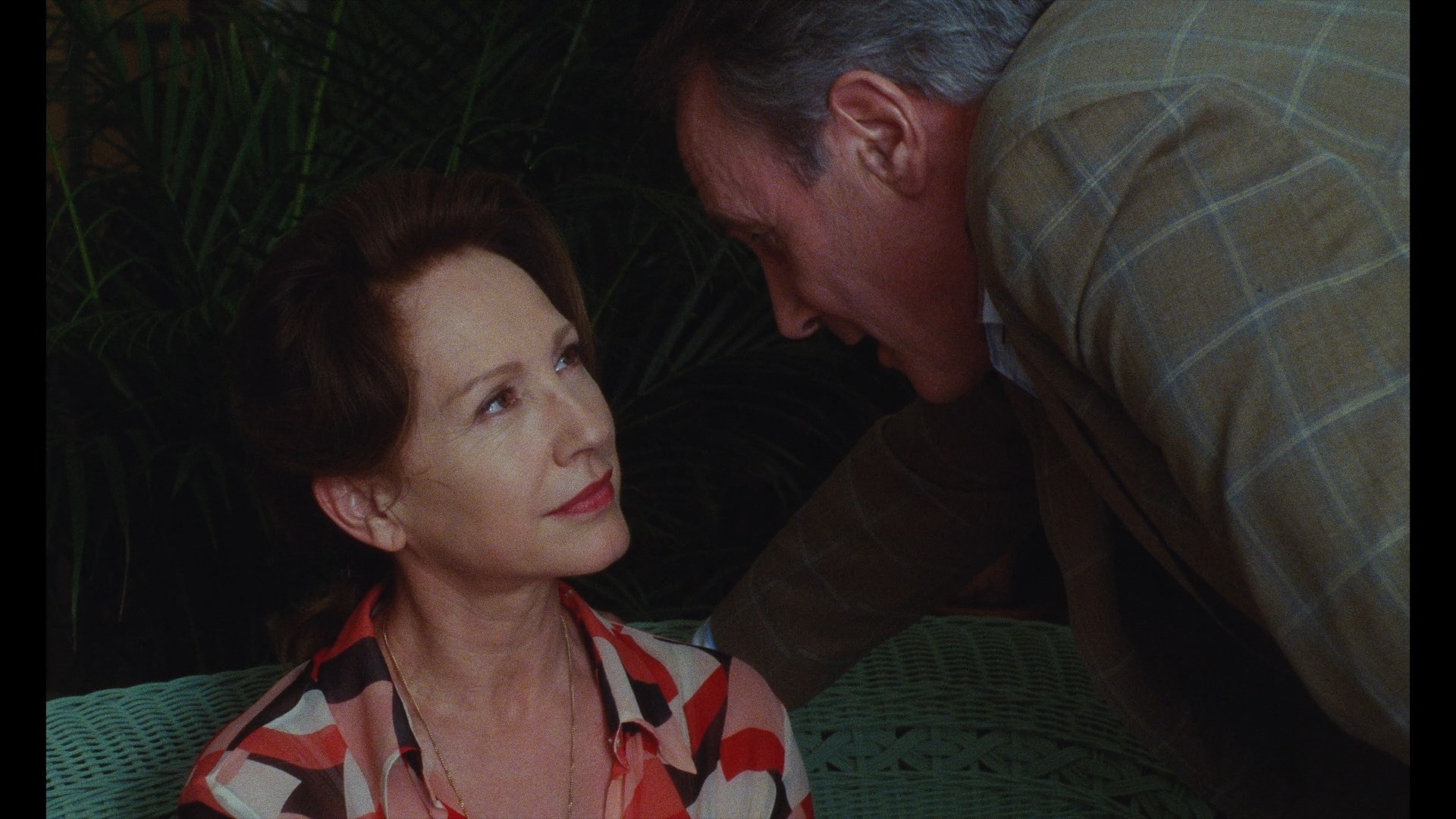 and crew bios, but the Blu-ray easily leaves it in the dust starting with a thorough commentary by Farran Smith Nehme. She starts off with
and crew bios, but the Blu-ray easily leaves it in the dust starting with a thorough commentary by Farran Smith Nehme. She starts off with 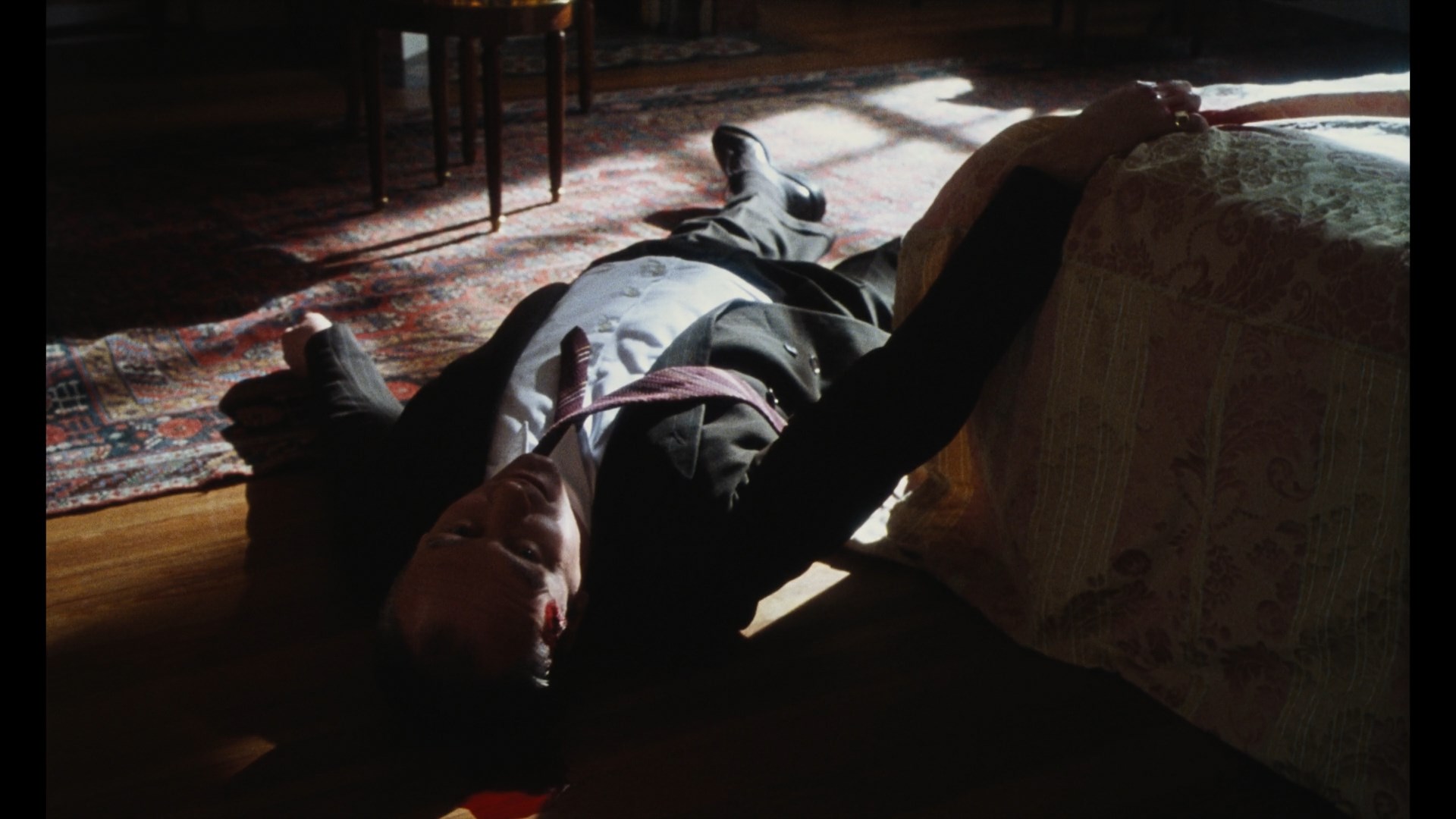 a general overview of Chabrol starting with his famous early days before honing in more on the film itself including its place as a late career entry, the overall perception of him at the time and as a member of the Nouvelle Vague, and the ramifications of the Nazi subplot (which makes this an interesting sort of fictional sequel to his harrowing documentary, The Eye of Vichy). In "Behind the Masks: Remembering Claude Chabrol" (14m30s), Agnès C. Poirier (author of Left Bank: Arts, Passion and the Rebirth of Paris 1940-1950) shares her own memories of Chabrol including many of his observations about life and art as well as his passion as a gourmand. Then you get an archival Magny intro (3m31s), more select scene Chabrol commentaries (49m29s), an archival behind-the-scenes featurette (25m36s) featuring interviews with Chabrol and the cast, an archival interview with screenwriter Catherine Eliacheff (24m47s) noting the points of similarity between the later films including the prominent roles for women, the French trailer, and an image gallery. Both sets (with artwork designed by Tony Stella) each come with an 80-page collector's booklet featuring essays from Martyn Conterio, Ellinger, Philip Kemp, Sam Wigley, Hogan, Brad Stevens, Dousteyessier-Khoze, Heller-Nicholas, and Pamela Hutchinson, along with archival material.
a general overview of Chabrol starting with his famous early days before honing in more on the film itself including its place as a late career entry, the overall perception of him at the time and as a member of the Nouvelle Vague, and the ramifications of the Nazi subplot (which makes this an interesting sort of fictional sequel to his harrowing documentary, The Eye of Vichy). In "Behind the Masks: Remembering Claude Chabrol" (14m30s), Agnès C. Poirier (author of Left Bank: Arts, Passion and the Rebirth of Paris 1940-1950) shares her own memories of Chabrol including many of his observations about life and art as well as his passion as a gourmand. Then you get an archival Magny intro (3m31s), more select scene Chabrol commentaries (49m29s), an archival behind-the-scenes featurette (25m36s) featuring interviews with Chabrol and the cast, an archival interview with screenwriter Catherine Eliacheff (24m47s) noting the points of similarity between the later films including the prominent roles for women, the French trailer, and an image gallery. Both sets (with artwork designed by Tony Stella) each come with an 80-page collector's booklet featuring essays from Martyn Conterio, Ellinger, Philip Kemp, Sam Wigley, Hogan, Brad Stevens, Dousteyessier-Khoze, Heller-Nicholas, and Pamela Hutchinson, along with archival material.COP AU VIN: Arrow Video Blu-ray
COP AU VIN: Cohen Media Group Blu-ray
INSPECTOR LAVARDIN: Arrow Video Blu-ray
INSPECTOR LAVARDIN: Cohen Media Group Blu-ray
MADAME BOVARY: Arrow Video Blu-ray
MADAME BOVARY: MGM DVD
BETTY: Arrow Video Blu-ray
BETTY: Cohen Media Group Blu-ray
TORMENT: Arrow Video Blu-ray
TORMENT: Cohen Media Group Blu-ray
THE SWINDLE: Arrow Video Blu-ray
THE SWINDLE: Cohen Media Group Blu-ray
THE COLOR OF LIES: Arrow Video Blu-ray
THE COLOR OF LIES: Cohen Media Group Blu-ray
NIGHTCAP: Arrow Video Blu-ray
NIGHTCAP: Cohen Media Group Blu-ray
THE FLOWER OF EVIL: Arrow Video Blu-ray
THE FLOWER OF EVIL: Palm Pictures DVD
![]()